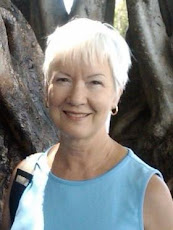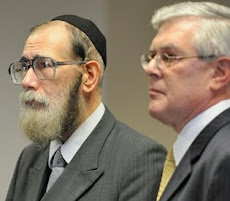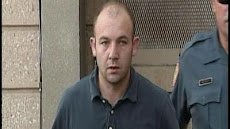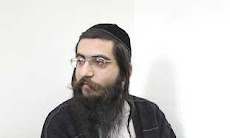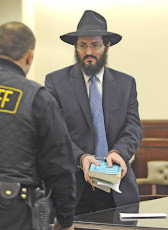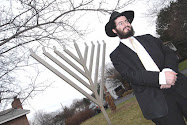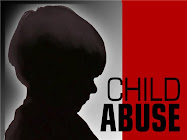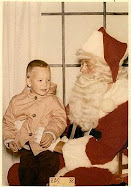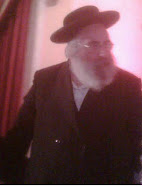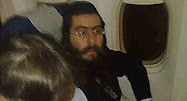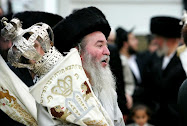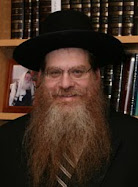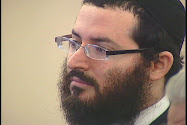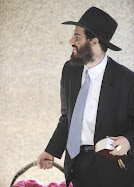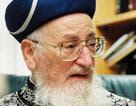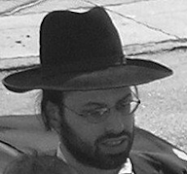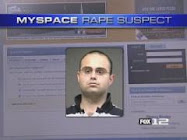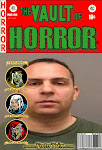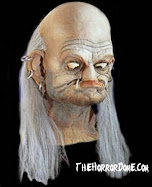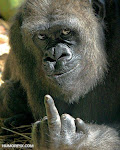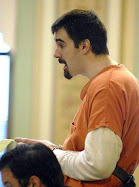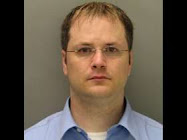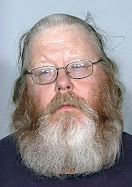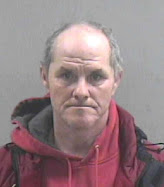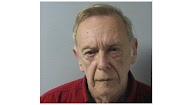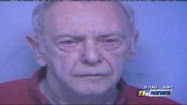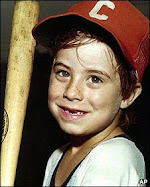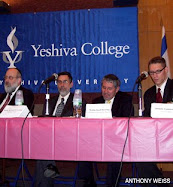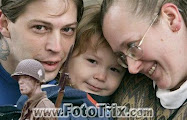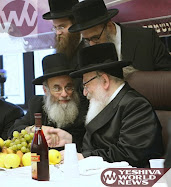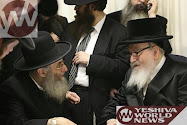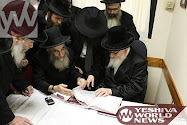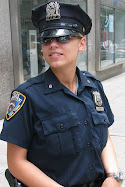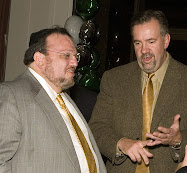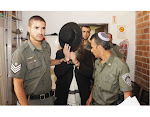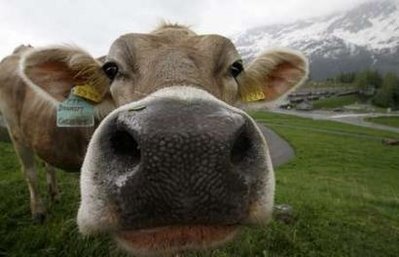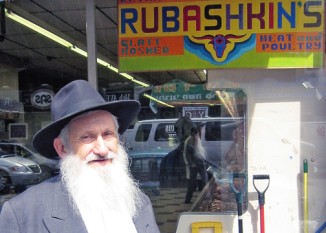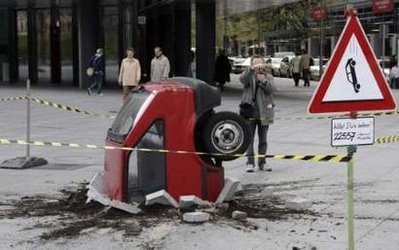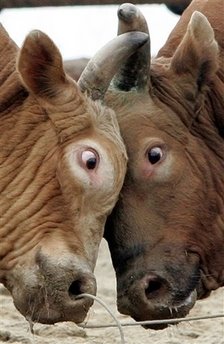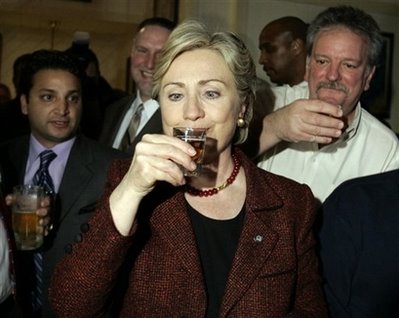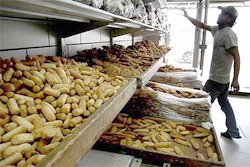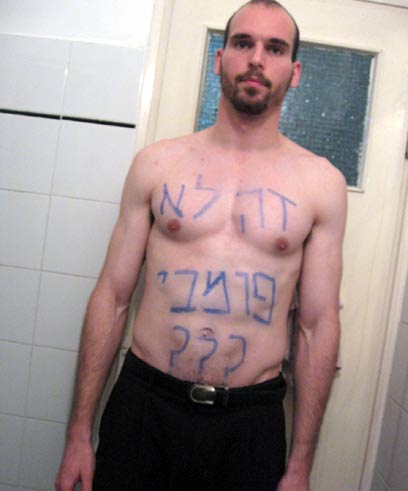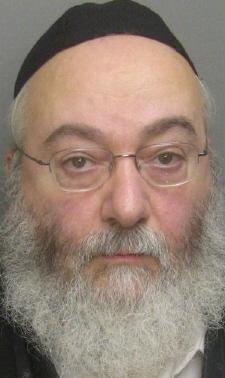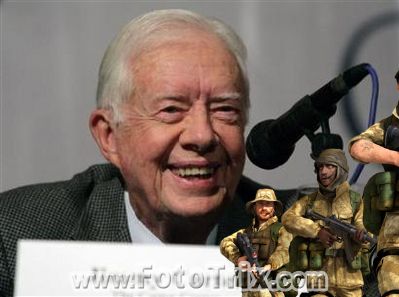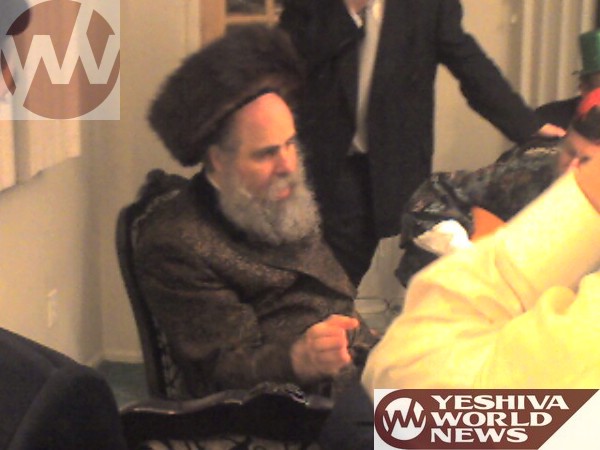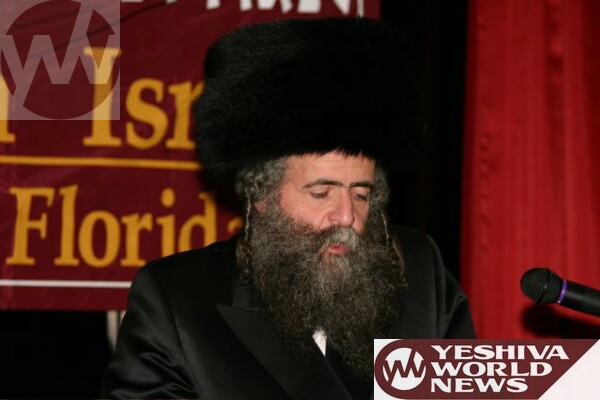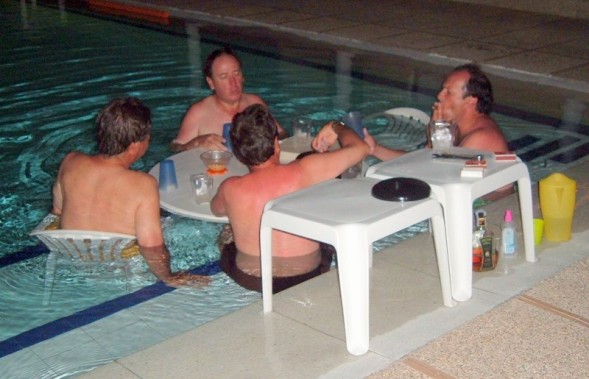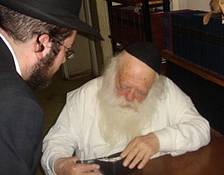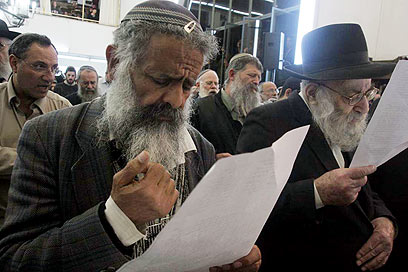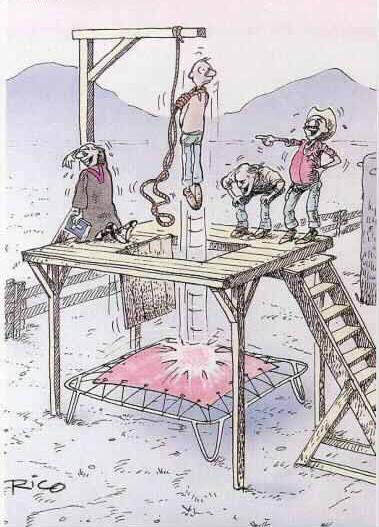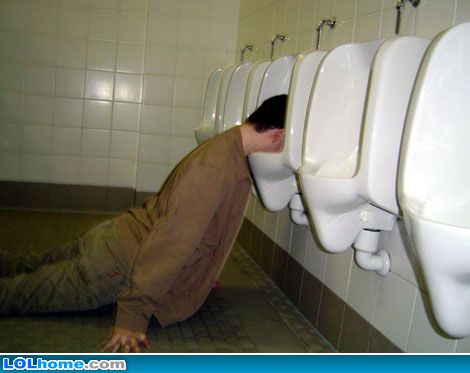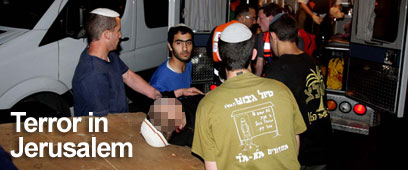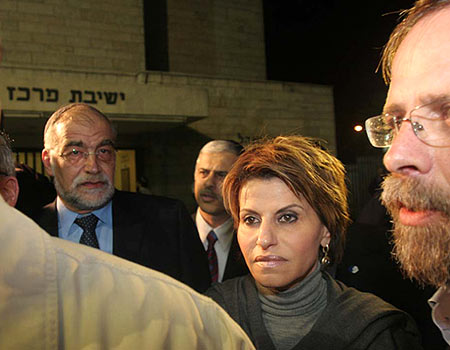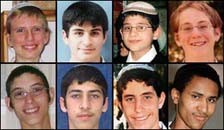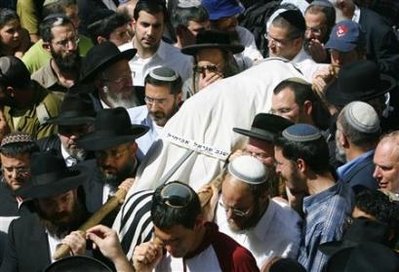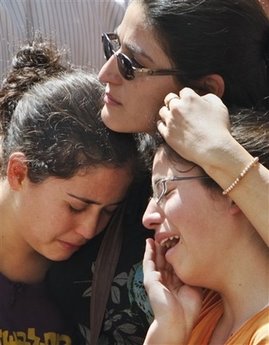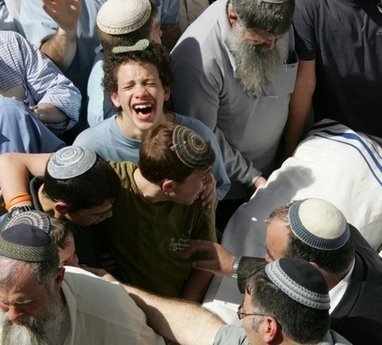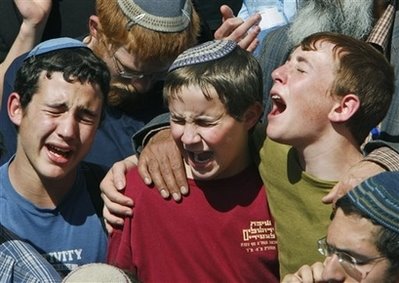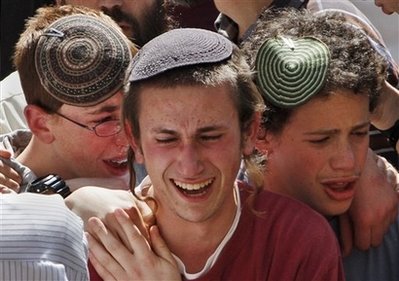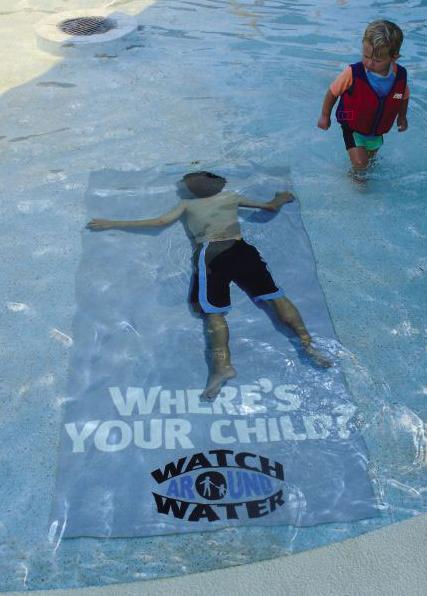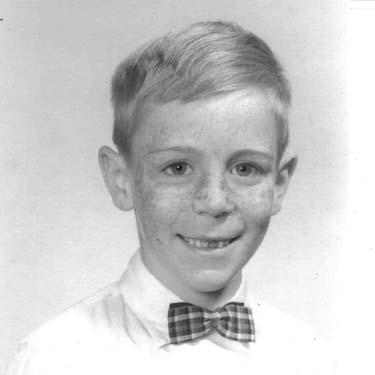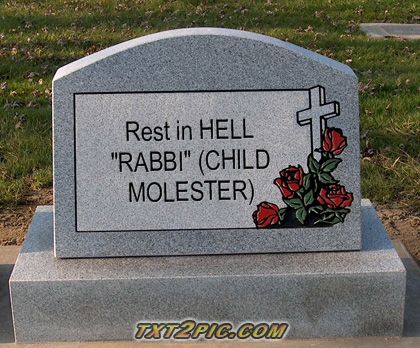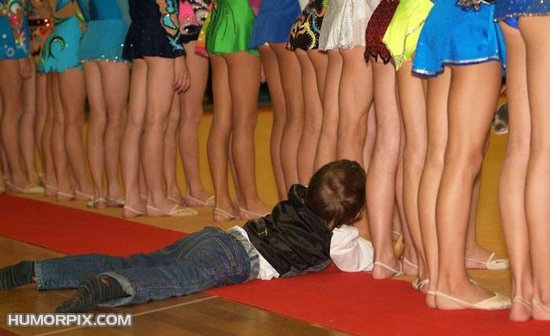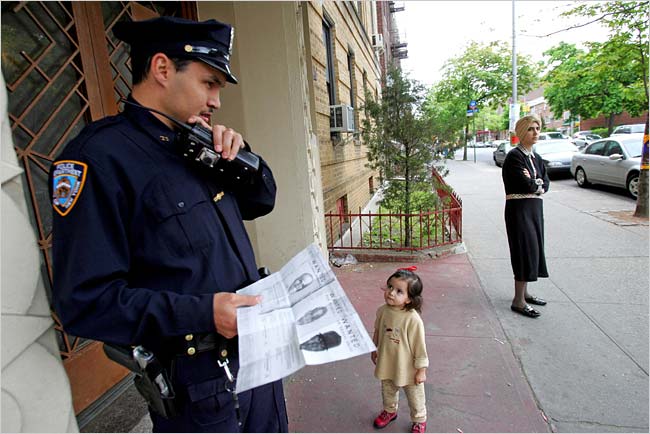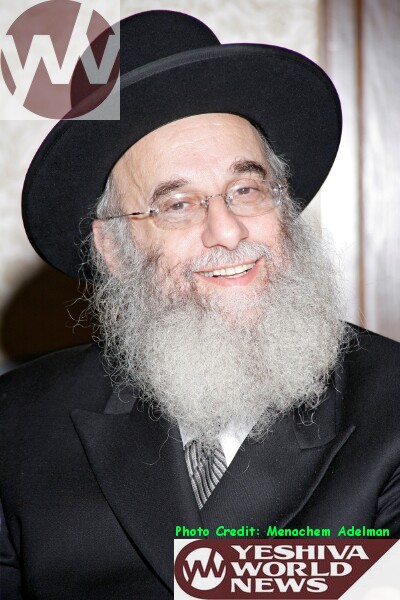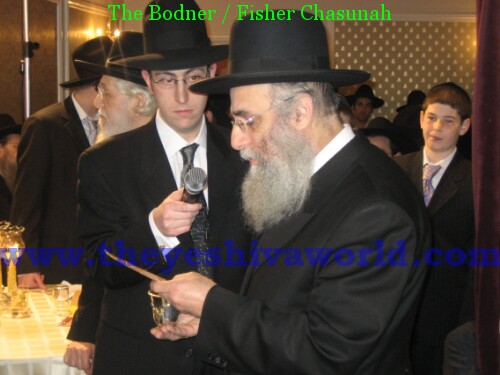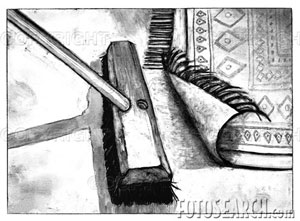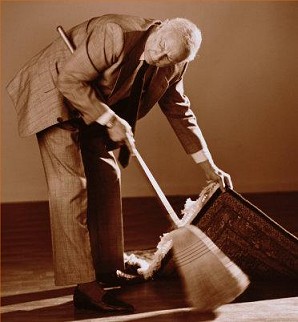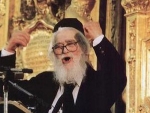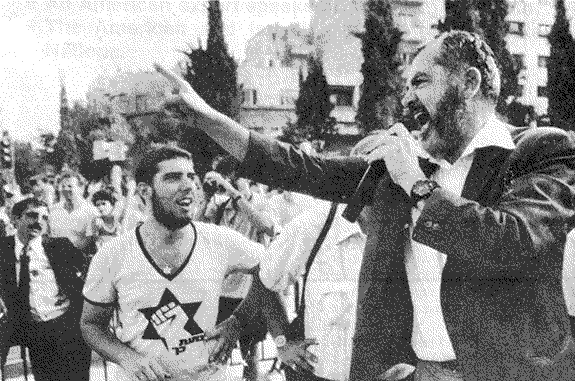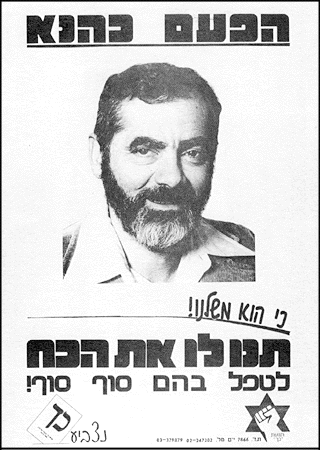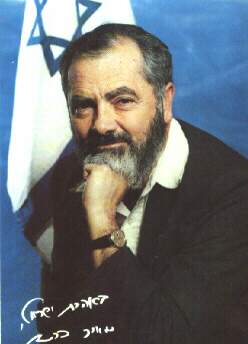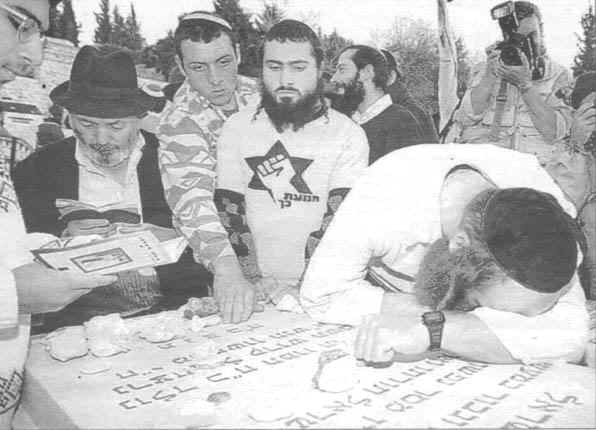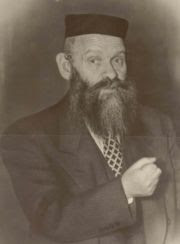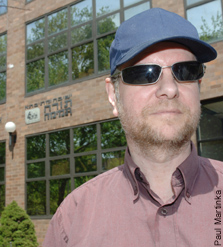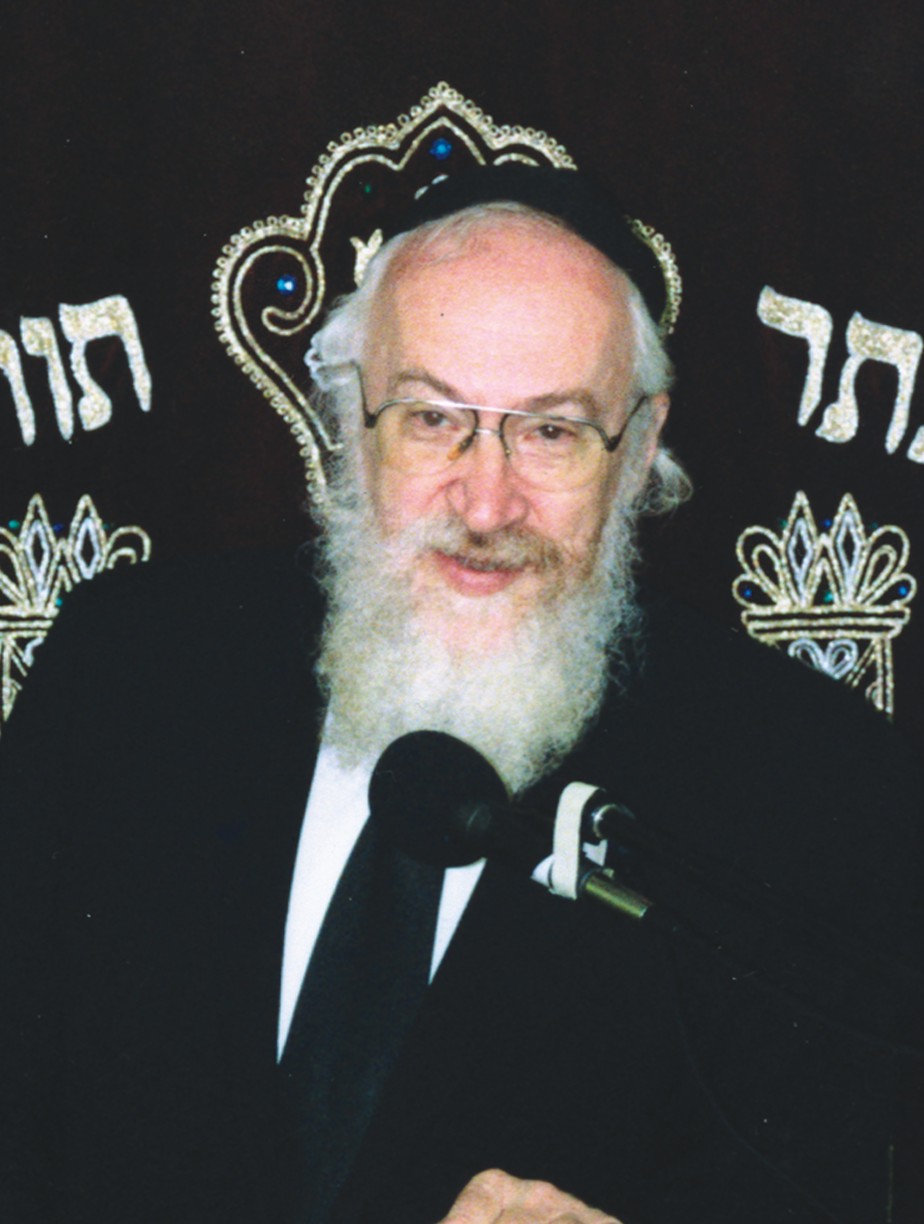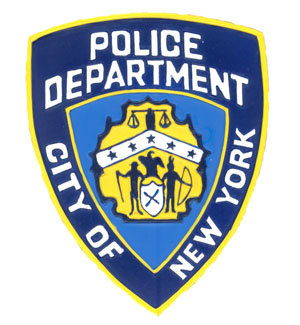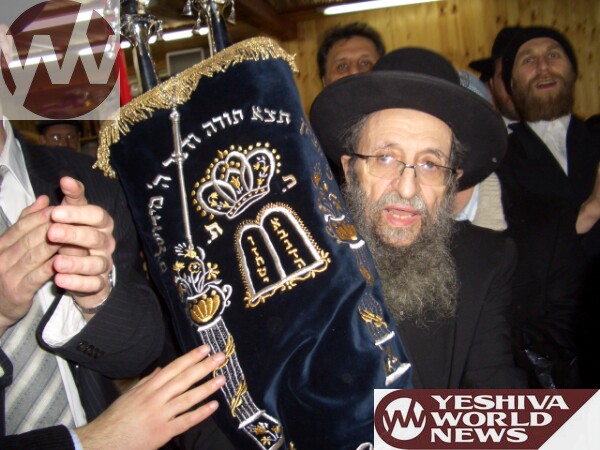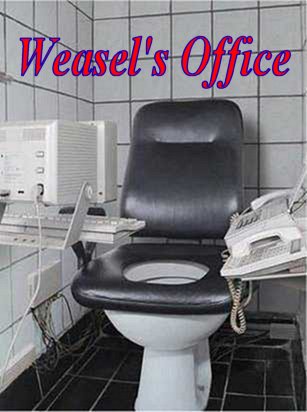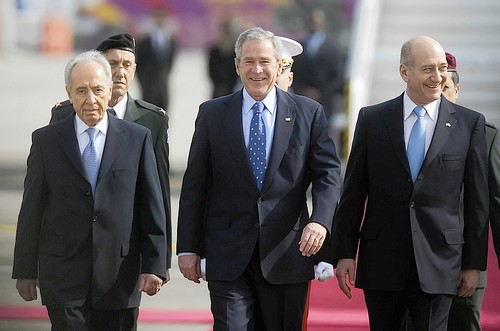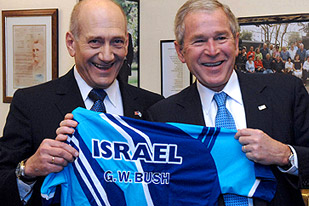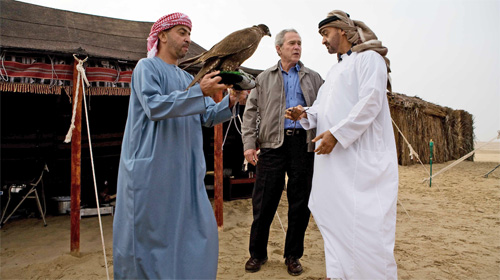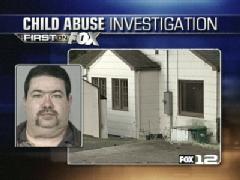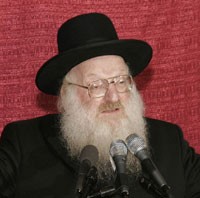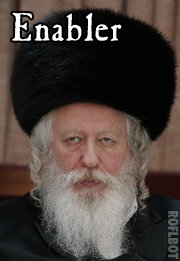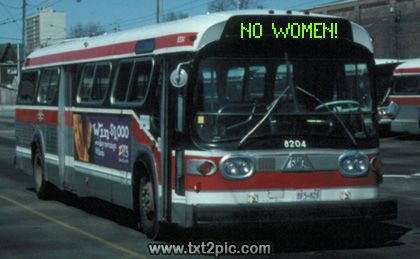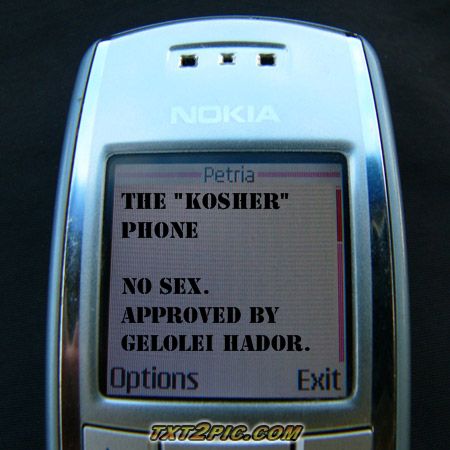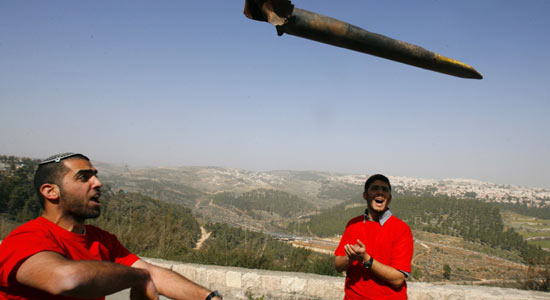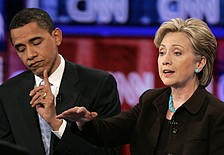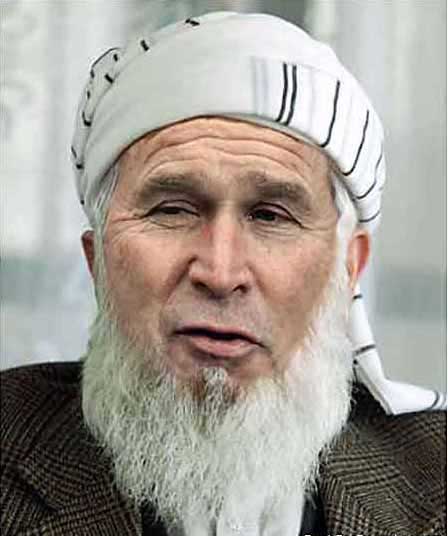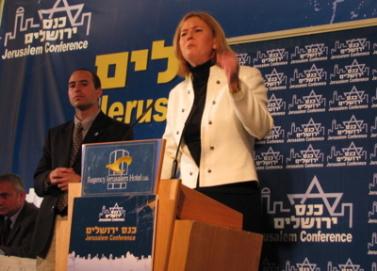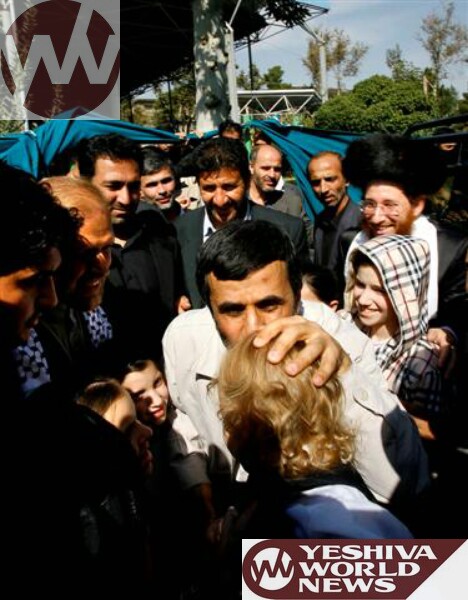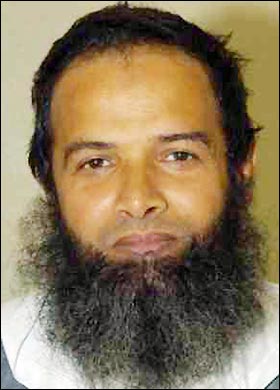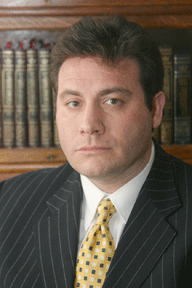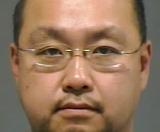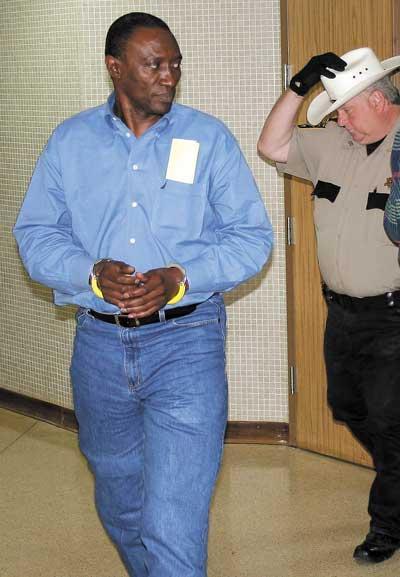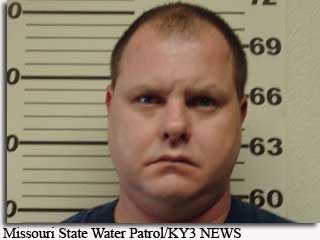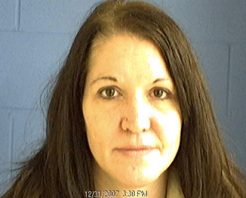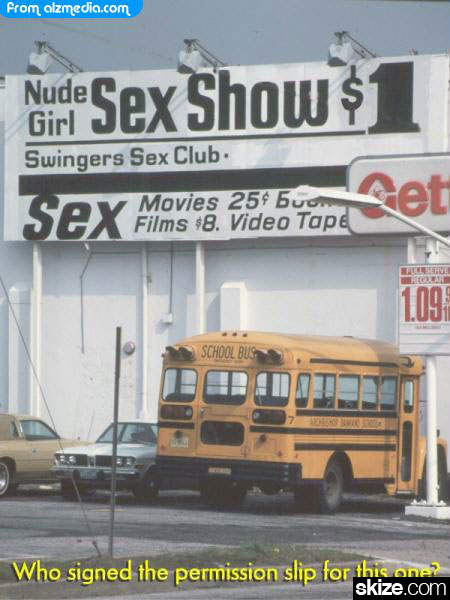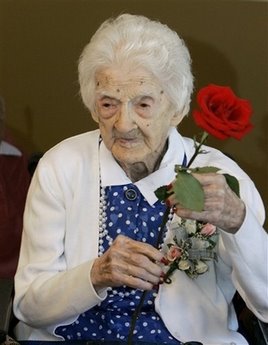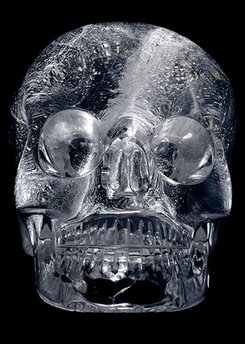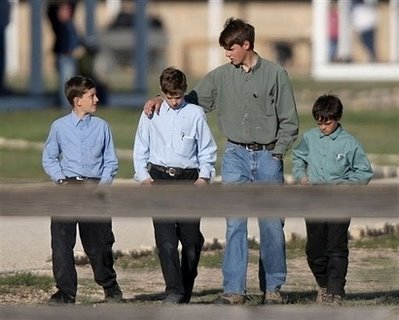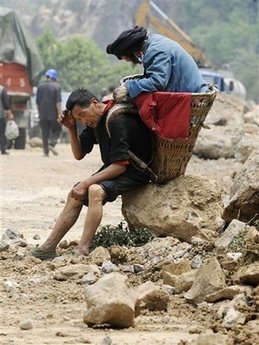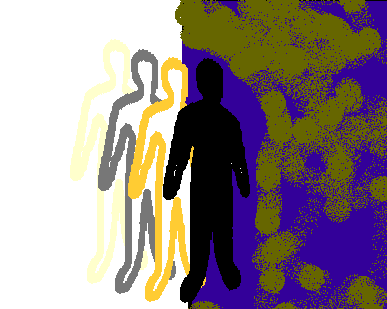 Admitted child molester Rabbi Lewis Brenner gets off with no jail time; Rabbi Ephraim Bryks (LEFT) is still on the loose in Queens NY.
Admitted child molester Rabbi Lewis Brenner gets off with no jail time; Rabbi Ephraim Bryks (LEFT) is still on the loose in Queens NY.
AS YOU WILL READ IN THE FOLLOWING ARTICLES, THE MAFIOSA JERKS LIKE BOBOV YESHIVA, ARE PART OF THE PROBLEM, NOT THE SOLUTION.
THERE WERE MANY INSTANCES WHERE BOBOV YESHIVA COULD HAVE HELPED WITH SEXUAL ABUSE THAT WAS BROUGHT TO THEIR ATTENTION, BUT INSTEAD SOUGHT TO (WHERE IS MATT SOLOMON WHEN WE NEED A QUOTE) SWEEP IT UNDER THE RUG.
SEXUAL ABUSE IS BAD ENOUGH, COMPOUND IT WITH PHYSICAL AND EMOTIONAL ABUSE DAY AFTER DAY AND YOU GET BROKEN HEARTS AND BROKEN SOULS AND FAMILIES AND LIVES FOREVER WRECKED AND DESTROYED ALL BECAUSE SOME NITWIT CHASIDESHE REBBE USES HIS STUDENTS AS HIS PERSONAL PUNCHING BAG. ALL BECAUSE "CHINUCH" IN THE MINDS OF THESE TRASHY REBBEIM TRANSLATES INTO PHYSICALLY, EMOTIONALLY, AND IN MANY CASES SEXUALLY ABUSING THEIR TALMIDIM.
THERE WILL BE NO MORE SEXUAL ABUSE TOLERATED. MOREOVER, THERE WILL BE NO MORE HITTING, WHACKING, PUNCHING, SCRATCHING, GRABBING, CHOKING, SMOTHERING, OR ANY FORM OF PHYSICAL ABUSE TOLERATED WHATSOEVER.
ALL YESHIVA'S ARE ON NOTICE:
ESPECIALLY THESE TWO
BOBOV
AND
SATMAR
WHO WIN THE ACEDEMY AWARD FOR SEXUAL, PHYSICAL, AND EMOTIONAL ABUSE.
THE OTHER CHASIDESHE AND NON-CHASIDESHE YESHIVA'S, YOU'RE NEXT!
TO THE PARENTS WHO ALSO PHYSICALLY ABUSE THEIR OWN CHILDREN:
YOU CONTRIBUTE TO YOUR CHILDREN'S DETRIMENT AND LOST LIVES BY WHACKING YOUR CHILDREN DAY-IN AND DAY-OUT. STOP BEATING UP YOUR OWN KIDS, IT'S ENOUGH THEY GET ABUSED IN YESHIVA EVERY SINGLE DAY BY THEIR REBBEIM AND MENAHELIM.
Case of Rabbi Jerry Brauner

Brauner Kosher Bakery Employee
Boro Park, Brooklyn, NY
Convicted on the charges of Sexual Abuse-1st Degree and Sexual Abuse-3rd:Subject Another Person to Sex Contact Without Consent. He was sentenced to 11 years probation, with the condition he must participate in a sex offender treatment program. Brauner has been on probation since 2002 for the sexual abuse of a 15-year-old boy.
On December 27, 2006, Jerry Brauner was arrested on charges of stealing a half-million-dollar home from a cancer-stricken woman, using a forged power of attorney to sell it and pocket the profits. Brauner is being held in lieu of $85,000 bail for lying about prior sex-abuse convictions when he applied for his notary's license.
Jerry Brauner currently is employed at Brauner's Kosher Bakery, which is owned by his father.
New York Sex Offender Registry February 12, 2006
http://criminaljustice.state.ny.us/nsor/search_index.htm
Current Reported Offender Details
County of Kings
 Offender Id: 14693
Offender Id: 14693
Last Name: BRAUNER First Name: JERRY Middle Name:
DOB: Dec 9, 1953 Sex: Male
Risk Level: 3 Race: White Ethnicity: Unknown
Height: 5'08" Weight: 230 Hair: Gray
Eyes: Blue Corr. Lens: YES
Reported Address: 1319 54TH ST 2ND FLOOR
City: BROOKLYN State: NY Zip Code: 11219
Sex Offender Type
Designation: No Designation Applies
Other Address Info or Status:
Conviction:
Date Arrest Agency Suprv. Agency Victim Sex/Age
Mar 21, 2002 NYCPD Sex Offender Unit Kings County Probation Adult Investigations Male, Unknown
Conviction Charges:
(Please note: a conviction for an attempt is generally punishable at one grade below the classification of the crime attempted, i.e., a rape 2nd degree is punishable as a class D felony while an attempted rape 2nd degree is punishable as a class E felony.)
Title Section Subsection Class Category Degree Description
PL 130.65 D F 1 Sexual Abuse-1st Degree
PL 130.55 B M 3 Sexual Abuse-3rd:Subject Another Person to Sex Contact Without Consent
Sentence:
Probation Sentence: 11 Year(s).
Maximum Expiration Date/post Release Supervision Date of Sentence:
The legal dates posted on this site are the dates which were reported at the time of registration and are subject to change. The conditions of supervision are subject to change during the supervision period. The special conditions of release do not apply past the maximum expiration date of sentence because the offender is no longer under supervision by the listed supervising agency for this crime.
Mar 21, 2012
Scars, Marks & Tattoos:
Description
Additional Names/Aliases:
Last Name First Name Middle Name
College Info:
Employed/Attend Name Street City State Zip
Employer Info:
Status Street City State Zip
Current 5405 13TH AVENUE BROOKLYN NY 11219
Vehicles:
Lic. Plate No. State Vehicle Year Make/Model Color
BRAUNR NY 1990 Oldsmobile Unknown White
CKC8205 NY 1994 Oldsmobile Unknown Green
291735 NY 2001 Chevrolet Suburban Tan
Special Conditions:
Special Conditions: Participate in sex offender treatment program.
Offense Description & Modus Operandi:
Offense Description: Actual Sexual Contact
Relationship to victim: Unknown
Weapon used: Unknown
Force used: Unknown
Computer used: Unknown
Pornography involved: Unknown
B'KLYN House 'Theft'
By ALEX GINSBERG
New York Post - December 28, 2006
www.nypost.com/seven/12282006/news/regionalnews/bklyn_house_theft_regionalnews_alex_ginsberg.htm
A devious cabal that included a pedophile rabbi stole a half-million-dollar home from a cancer-stricken woman, using a forged power of attorney to sell it and pocket the profits, Brooklyn prosecutors charged yesterday.
According to investigators, Margaret Franklin's Crown Heights home was stolen in August 2004 after Nathen Farkas, 31, forged a power of attorney, signing Franklin's name, that effectively handed control of her assets to co-defendant Russell Pitt.
The power of attorney was notarized by a third defendant, Jerry Brauner, 53, a rabbi who had been on probation since 2002 for the sexual abuse of a 15-year-old boy.
Pitt then "sold" the property to the fourth defendant, Winston Roche, 59, and a $476,000 mortgage was split among Roche, Pitt and Farkas.
"Margaret Franklin never got a nickel," said Assistant DA Michael Vaccaro. "Then she died."
Farkas was ordered held in lieu of $85,000 bail and Roche on $45,000. Pitt is still at large.
Brauner was held in lieu of $85,000 bail for lying about prior sex-abuse convictions when he applied for his notary's license.
Lawyers for the three men arraigned yesterday denied that their clients knew anything sinister was going on, suggesting Pitt was the mastermind.
==================================================
Case of Rabbi Lewis Brenner
(AKA: Lippa Brenner)
Brooklyn, NY
Convicted of child molestation. The original charges included 14 counts of sodomy, sexual abuse and endangering the welfare of a child. He agreed to plead guilty to one count of sodomy in the third degree, a Class E felony, in exchange for a sentence of five years' probation.
Prosecutors said Brenner had sexual contact with a youth he met in the bathroom of the temple they both attended. The molestations allegedly took place over a three-year period that ended in 1995 when the victim was 15 years old.
Note: Rabbi Lewis Brenner's daughter Yochevad, is married to Rabbi Ephraim Bryks.
Court To Hear Sex Offender Registry Case - Case Could Affect Oklahoma Law
May 20, 2002
http://www.channeloklahoma.com/okl/news/stories/news-146914120020520-090533.html
WASHINGTON -- The Supreme Court agreed Monday to consider a constitutional challenge to some registries of known sex offenders, the second case the court will hear involving lists meant to keep tabs on potentially dangerous sex criminals.
The court said it will hear an appeal from Connecticut, where a federal judge struck down the state's sex offender registry last year. The judge found that the law violated the constitutional rights of past offenders, because their names were placed on the list without a chance to prove they are no longer dangerous to society.
SEX OFFENDER REGISTRY
Is it unconstitutional? What do you think?
The New York-based 2nd U.S. Circuit Court of Appeals agreed, and the registry is no longer publicly available.
The case could affect more than 20 states, including Oklahoma, with similar laws requiring community notification based on the offender's record rather than an individual evaluation of his or her current likelihood to repeat the crime.
A high court ruling against Connecticut could force states to hold separate hearings for sex criminals to assess whether their names, addresses or other identifying information will be made public.
All states have laws requiring some kind of list of sex criminals, but some provide the public with names of only those offenders deemed dangerous. Still other states have hybrid laws, making the names public in the cases of serious sex crimes, but taking a case-by-case approach when the crime is considered less egregious.
The registry laws are usually called Megan's law, after Megan Kanka, a New Jersey girl raped and killed in 1994 by a neighbor who was a convicted sex offender. Her parents didn't know his history when he moved in across the street.
The registries take conviction records already publicly available through police or court records, and compile them in one place. Information on Connecticut sex offenders is still publicly available on the old piecemeal basis.
The Bush administration backed Connecticut in asking the Supreme Court to step in.
"Megan's laws serve vital government interests by assisting law enforcement and enabling American communities to better protect themselves, and in particular their children," the administration's top Supreme Court lawyer wrote in court papers.
Solicitor General Theodore Olson noted that federal law requires states to have a registry, or face a reduction in federal funding.
Twenty-three states and the District of Columbia also filed a friend-of-the-court brief backing Connecticut.
The Supreme Court will hear the case in the term that begins next fall.
The court will also hear a separate constitutional challenge to laws in about a dozen states that publish names, addresses or other personal information about convicted sex offenders on the Internet. The question in that case is whether such publicly available lists, which include names of people who long ago served their sentences, amount to unconstitutional double punishment for the same crime.
Connecticut's registry was also available over the Internet, but that factor was not the key to the case the high court agreed to hear Monday.
The registry was created in 1998 and operated by state police. Users could search by town for lists of resident sex offenders. It listed the names, addresses and, in most cases, pictures of nearly 2,100 offenders. The Web site received 150,000 hits per month, state police said.
Two anonymous sex offenders sued the state, claiming they are no longer a danger to society and should not be stigmatized. The men claimed the registry violated their constitutional right to fair treatment in the courts by denying them a chance to keep their names off the list.
According to the Justice Department, laws similar to Connecticut's are in force in: Alabama; Delaware; the District of Columbia; Florida; Georgia; Illinois; Indiana; Louisiana; Maryland; Michigan; Mississippi; Missouri; New Mexico; North Carolina; Oklahoma; South Carolina; Tennessee; Texas; Utah; Virginia; West Virginia and Wisconsin.
The case is Connecticut Department of Public Safety v. John Doe, 01-1231
Rabbi's trial begins
by Elaine Silvestrini- Freehold Bureau
Asbury Park Press (NJ) - June 12, 2002
FREEHOLD - Jury selection began yesterday in the case of a rabbi accused of sexually molesting two teen-age students while he was principal of Hillel High School in Ocean Township.
Rabbi Baruch Lanner, 52, of Fair Lawn is charged with two counts each of aggravated criminal sexual contact, criminal sexual contact and endangering the welfare of a child between 1992 and 1997.
Endangering the welfare of a child is the most serious of the charges, and it carries a maximum possible sentence of 10 years in state prison.
Lanner is being represented by a team of three lawyers, who also employed a jury consultant to sit with them in the courtroom during jury selection. The defense maintains that the two teens have motives to lie about Lanner because they blame him for setbacks in their education and their lives.
Superior Court Judge Paul F. Chaiet has granted permission to an out-of-state lawyer, Marvin E. Schechter, to represent Lanner, along with lawyers Julian Wilsey of Livingston and Tama Beth Kudman of Hackensack and New York.
The government's case is represented by a single assistant prosecutor, Peter Boser.
Schechter, who is former president of the New York State Association of Criminal Defense Lawyers, has tried more than 100 cases and has been an adjunct faculty professor at Fordham Law School, according to court papers submitted by the defense.
He has lectured on topics, including "Sex Crimes - Defense Techniques" and "Voire Dire (jury selection) Techniques."
According to the New York Law Journal, Schechter represented Brooklyn Rabbi Lewis Brenner, who pleaded guilty to a charge of sodomy after being charged with 14 counts of sodomy, sexual abuse and endangering the welfare of a child.
According to the Journal, prosecutors said Brenner had sexual contact with a youth he met in the bathroom of the temple they both attended. The molestations allegedly took place over a three-year period that ended in 1995 when the victim was 15 years old, the Journal reported. Rabbi Brenner was sentenced to five years probation.
The Lanner investigation reportedly began after one of the victims' allegations were reported in New York Jewish Week in July 2000. The newspaper conducted an investigation that turned up abuse claims by 25 of Lanner's former students, most from the job he held before he came to Hillel High School in 1982.
Mindful that allegations of sexual abuse by clergy are a hot topic in the media, the judge yesterday assembled a larger-than-usual pool of 100 potential jurors and gave each jury candidate a questionnaire to complete. The jury candidates were then sent home and directed to return to court today.
Ordinarily in non-capital cases, jury selection is conducted differently, with oral questioning of potential jurors by the judge, who addresses his inquiries to a panel with directions for people to raise their hands if a question applies to them.
Among the questions contained on a three-page questionnaire given to jury candidates yesterday was, "Do the recent scandals of a sexual nature that are affecting the Catholic church have any bearing or affect your ability to be a fair and impartial juror?"
Potential jurors are also being asked their religious affiliation and whether they or any family members or friends have been the victim of sexual abuse or harassment.
While he did not screen the entire panel yesterday, Chaiet did excuse at least three jury candidates who felt they could not be fair because of the nature of the charges.
He also began hearing excuses from some jury candidates who felt they could not sit for the expected three-week trial. A total of 14 people were excused for hardships ranging from scheduled medical procedures to lack of income or scheduled trips.
The judge did not accept all excuses, and refused to release a physician, for example, who said he worked in a hospital and has patients and new residents coming in. Chaiet told the doctor his staff could fill in, and directed him to "take a seat" in the jury box.
Jury selection was set to resume this morning.
Tripping Up The Prosecution
By Stephanie Saul - Staff Writer
Newsday - May 28, 2003
Last in a series.
http://www.nynewsday.com/templates/misc/printstory.jsp?slug=nyc%2Dpros0529§ion=%2Fnews%2Flocal%2Fqueens
Former New Yorker Avrohom Mondrowitz has built a quiet, comfortable life as a college professor in Jerusalem.
The syllabus for his business administration course at Jerusalem College of Engineering is posted on the Web, along with his phone number.
Mondrowitz is living so openly, it's hard to believe the psychologist and self-styled rabbi is wanted for allegedly sexually abusing four Brooklyn boys, ages 10 to 16. The charges against him include sodomy.
"I don't want this hydra to lift its head again," said Mondrowitz, declining to discuss his 1985 indictment on 13 counts. Once the host of a radio program in Brooklyn, Mondrowitz will be arrested should he ever re-enter the United States, according to the office of Brooklyn District Attorney Charles J. Hynes.
But according to U.S. Justice and State department documents, Hynes' office approved a decision in 1993 to drop efforts to extradite Mondrowitz, a U.S. citizen who has been sheltered by the Israeli government since he fled the United States in 1985.
Michael Lesher, a New Jersey attorney who obtained the federal documents after years of research on the Mondrowitz case, said the decision to drop efforts to return Mondrowitz to the United States is an embarrassing one, considering the severity of the charges.
A spokesman for Hynes, Jerry Schmetterer, was at a loss to explain the decision.
"We don't know anything about the State Department closing its file," said Schmetterer, calling the federal records a "mystery."
"We have nothing in our files to indicate we ever made that decision," said Schemetterer, emphasizing that the Mondrowitz file is still kept in a prosecutor's desk in the event Mondrowitz ever returns from Jerusalem.
Escape to Israel is merely one of the factors that can hamper prosecution of alleged sex abuse in the Orthodox community.
Police and prosecutors find that victims of alleged sexual abuse in those communities are discouraged from coming forward.
Intense pressure is often brought to bear on complainants who bypass rabbinical courts -- the community's preferred method of settling disputes -- and instead go to secular authorities. Witnesses, who are often young, become fearful and wavering. And prosecutors face pressure from a community that votes as a cohesive block.
One woman, whose son was called to testify about an alleged instance of abuse, said that extraordinary pressure was placed both on her family and on the family of the alleged victim.
"I had rabbis coming by. They threatened we'll have curses in our family. It might sound silly to you, but it was very frightening," said the woman.
She said that rabbis supplied her with a statement from a psychologist who had never examined her son, saying he was not fit to testify.
In Brooklyn, with its large Hasidic community, police have been confounded by the outcomes of some cases they investigated involving the Hasidim.
At a loss to explain the cases, some cops in the 66th Precinct, which includes Borough Park, have shrugged their shoulders and paraphrased a line from the Jack Nicholson film "Chinatown" -- "Forget it, Jake, it's Brooklyn."
One of those who recalls making the remark was retired police Capt. William Plackenmeyer, who worked for many years in Brooklyn. "In Brooklyn, it almost seemed like there were two penal codes, one for the Hasidic community and one for everyone else," Plackenmeyer said.
But Hynes' office says decisions on prosecutions are made without regard to political considerations or community pressure.
"We prosecute sex crimes. We prosecute allegations of child abuse, sex abuse," said Schmetterer. "Trained investigators conduct these investigations and come to a conclusion. They make the decision."
The arrest of a popular rabbi in the Bobox Hasidic sect in January 2000 provides another example of the pressure that can be placed on those who complain to outside officials. In that case, a 9-year-old boy accused the Brooklyn rabbi, his tutor, of physically and sexually abusing him.
In the end, Hynes' office threw out all charges against Rabbi Solomon Hafner. Schmetterer said they were found to be baseless.
But before the case was resolved, the police assigned 24-hour protection to the complainant's family, according to a law enforcement source. The family had been threatened by members of the Bobov community, the source said.
"They excoriate the victim, they run them out of the community, they make sure the victim will never marry," said sociologist Amy Neustein, who, with Lesher, researched the Hafner case and frequently writes about domestic abuse in the Orthodox community and provided documents for this article.
The boy's family later moved from Brooklyn to the quieter Bobov community in Monsey. The family would not talk to Newsday, but a friend said the move was an effort to escape community pressure.
While Hynes' office was examining the boy's allegations, the Bobov community convened a rabbinical court, a bet din, to conduct its own investigation.
The child's uncle later complained that rabbis on the bet din had asked the family to sign a document saying the boy was crazy so that they could get the criminal case thrown out. Several members of the bet din either did not return calls from Newsday or declined to discuss the religious court's proceedings.
Meantime, according to the law enforcement source, Bobov rabbis appeared in Hynes office' to plead in Hafner's defense.
Hynes' spokesman Schmetterer would not confirm or deny that such meetings took place, but he said it is not unusual for Hynes' office to meet with community leaders on cases.
After the bet din decision, the five-member panel posted notices throughout Borough Park clearing Hafner. "Rabbi Hafner's comportment with [the child] has been in complete accordance with both Torah law and the law of the land, and a parent should not hesitate to engage Rabbi Hafner as a tutor for his/her child."
With intense pressure from the community common in such cases, families also come under indirect pressure not to go public with their cases.
The social stigma attached to being the victim of sexual abuse in the general public is magnified within the Hasidic community, sources said, so much so that Hasidic victims can find it difficult to marry within the community.
And, as with sex-abuse allegations generally, parents fear causing further psychological damage to their children by placing them on the stand.
In 1995, for instance, Hynes' office charged Rabbi Lewis Brenner with repeatedly sexually abusing a boy starting in 1992 and ending in 1995, when the boy, then 15, told police. Among other places, the alleged encounters occurred in the bathroom of the rabbi's Brooklyn temple.
In a statement to the court, the boys' devastated parents said he could not even attend school, he was so troubled by "a raging cyclone of hate."
"Our son is with us physically today, but his self-respect, dignity and sense of worth were stolen from him at the tender age of 12," the boys' parents said. "Do you realize that you destroyed a world and our family, Mr. Brenner? You have stolen from our son the very essence of his life, his hopes, dreams and aspirations for the future."
The charges against Brenner initially included 14 counts, including sodomy, sexual abuse, and endangering the welfare of a minor. But a plea agreement whittled the charges down to one felony, stunning a Brooklyn judge.
"Given the nature, gravity and frequency of the sexual contact alleged in the felony complaint, this court was surprised by the People's plea offer and requested of the prosecutor a statement why it was forthcoming," said acting Supreme Court Justice Charles J. Heffernan in a court ruling.
The district attorney's office told the judge that the boy's family agreed to the plea bargain ... Recently, an official of the district attorney's office said the family did not want to go through with a trial.
The plea arrangement left Brenner a free man -- he got 5 years probation.
Brenner is the father-in-law of Ephraim Bryks, a Queens rabbi who was the subject of a story in Newsday on Tuesday.
Two teenagers told Canadian police years ago that Bryks abused them when they were youngsters. Bryks has never been charged with a crime and has denied the allegations.
After Brenner's plea deal, he asked the court to exempt him from the sexual abuse registry on grounds that his behavior occurred before the law was passed.
Heffernan refused.
============================================
Case of Rabbi Yaakov Yitzhak Brizel
Jerusalem, Israel
Rabbi Yaakov Yitzhak Brizel wass accused of molesting several male children. Allegations were made of a cover up.
Sodomy in the synagogue - Mother went out of her mind And the Modesty Squad Kept Silent: For Many Years, Yaakov Yitzhak Brizel, The Nephew of the Founding Leader of the Modesty Squad, Sodomized Ultra-Orthodox Boys. The Greatest Reabbis Knew - And Did Nothing
by Shahar Ilan
Ha'aretz - February 1, 2000
Though Brizel was a scion of the Brizel family, which founded the Modesty Squad, the mysterious organization that imposes moral order on the ultra-Orthodox ghetto, like most ultra-Orthodox children he had no idea what a homo was. As he sensed that he had been told something terrible, he left school in the afternoon and went home. "Mother, what is a homo?" he asked. His mother blanched, but she kept the secret: "When you grow up, you'll know, Shaiya, when you're big you'll know," she replied.
Shaiya Brizel was already very tenacious. He decided that such a difficult problem could be solved only by the rabbi of Bnei Brak, Rabbi Yaakov Landau, one of the most important of the ultra-Orthodox rabbis, who has since died."My name is Shaiya Brizel," he told the rabbi. "I've come to you to tell you what happened at my school and to ask you a question." Landau, it turns out, knew exactly what the secret was. "I will not explain to you what a homo is," he replied. "I will tell you only that I know who your father is, and he desecrates the name of the Lord in public."
Now it had become official. Brizel understood that his father, a respected Torah scribe, had transgressed a huge prohibition of the Torah. But only his older friend, Menachem, was prepared to explain to him what that prohibition was. Menachem used the means known to every ultra-Orthodox child. He took the Book of Leviticus and opened it to 18:22: "Thou shalt not lie with mankind as with womankind; it is an abomination."
What is the punishment, Shaiya demanded. Menachem could not evade it: "Whosoever shall do any of these abominations, even the souls that do them shall be cut off from among their people" (18:29).Had the father, Yaakov Yitzhak Brizel, the nephew of the founder of the Modesty Squad, Eliezer Brizel, contented himself with homosexual relations with adults, it is reasonable to suppose that we would never have heard his son's story. However, in his book, "The Silence of the Ultra-Orthodox," published a few weeks ago, the son claims that for decades his father seduced and sodomized yeshiva students. He committed the act in empty synagogues during the hours between prayers and in other places.
The greatest of the ultra-Orthodox rabbis, claims Brizel, like Rabbi Landau and the halachic sage Shmuel Halevi Hausner of Bnei Brak, knew and kept silent. The father was a Hasid heart and soul, and went to a number of rebbes. One of these, the Rebbe of Kretschnif from Rehovot, expelled him from his following after he discovered the truth. But the twin brother of the rebbe from Rehovot, the Rebbe of Kretschnif in Kiryat Gat, was happy to accept the father among his followers. Ultimately, claims Brizel, it was not easy for the Rebbe from Kiryat Gat to be picky when he could win such a respected adherent.
The reknowned Brizel family, one of the pillars of the extreme ultra-Orthodox wing known as the Eda Haharedit, had no need to bring the Modesty Squad into the affair; it was involved in any case. The Brizel family used its enormous influence to hush up the affair, again and again.
Did you ask your grandfather's brother, Rabbi Eliezer Brizel of the Modesty Squad, why he kept silent all these years?
"No, he was not a person I could talk to. He was older than me by 70 years. He wasn't someone I could hold an ideological discussion with."
Did you ask anyone in the Modesty Squad why they kept quiet?
"I know why they kept quiet: because no one has the strength to meddle with Brizel family. Every time anyone submitted a complaint against my father to a rabbinical court because of what he did, my uncle would immediately show up at the court and close the matter."
The proud father with the look of an honored rebbe, who observed all the commandments from the slightest to the most important, used to pray at a certain yeshiva with the young boys. There, claims Shaiya Brizel, he hunted his victims. When the head of the yeshiva discovered the true reason that the respected Torah scribe was praying fervently at his yeshiva, he did not contact the police, but confined himself to expelling the father from the synagogue and transferring the problem to someone else's territory.
Before the publication of his book, Shaiya Brizel met with the yeshiva head. "You are right that we covered up for him," admitted the man. "I and a few other rabbis...I was busy trying to calm things down and hushing up the affair so that it would not get publicized." The rabbi also begged Brizel to give up the book. "Shaiya, these things happened a long time ago. Your father is old and can no longer sin."
But Shaiya is also a Brizel, and when he goes into battle he uses all the means at his disposal. He published the book using real names. His entire family and almost all the rabbis appear under their own names. Only the names of some of the localities and the head of the yeshiva are disguised. To protect himself from a legal point of view, Brizel held a series of conversations with members of his family and rabbis, in which he demanded explanations of why they had covered up for his father's misbehavior. He secretly recorded all these conversations, even with his mother.
"If I had written without the names it would have been fiction and this certainly did not suit me," he explained. "I wanted things to change, for ultra-Orthodox society to know that it can attempt to hide things and be hidden, but even if it takes 30 years, a Golem will always rise up against its creator and reveal everything. In this case, I was the Golem."When Rachel Brizel, the daughter of a good Bnei Brak family, married an arranged match from the glorious Brizel family, she had no idea that she was destroying her own life. After six months, she caught her husband having sex with another man. In that case, at least it was with an adult.
Shaiya Brizel relates that some of the boys with whom his father had relations sent letters of complaint to their own fathers; in the discreet ultra-Orthodox society they had no one else to whom they could complain.
"When she read these letters, my mother went out of her mind," writes Brizel. "Every such letter made her want to demand a divorce. Again and again batteries of mediators, the Brizel rabbis, would show up, whose job it was to calm her down so that, heaven forbid, she would not destroy the good name of the Brizel family. They could live with the fact that one of their own had raped minors, but for them divorce was an impossible situation."
"We, the children," he relates, "became objects of derision." He recounts that in ultra-Orthodox society there is a special scornful look that is used when a person who has someone with a bad reputation in his family is identified. But this does not always end in dirty looks. Twice, once during prayers in a synagogue, and once during a Gemara study hour at Rabbi Eliezer Shach's Ponevezh Yeshiva, ultra-Orthodox men who were strangers to him touched his sexual organ, presumably on the assumption that he followed in his father's footsteps. The first time, he made a fuss, only to discover that the only thing that interested the people there was to hush the whole thing up. The second time, he made do with a whispered warning to the man.
How do you feel about your father?
"I pity him and hate the way he behaved. He should have remained single. A person is not supposed to bring children into this shame."
Shaiya Brizel is now 36 and the father of three; he works as an accountant. His father, 65, was forced to leave home several years ago and return to his elderly parents' apartment. Shaiya wrote this book after a suicide attempt in June of this year. "For all those years I was half dead. For the past five years I have been getting psychological treatment. During my talks with the psychologist I decided that I was going to spew out all this ugliness in the form of a book."
He took into account that there would be violent reactions to the book. These have not occurred, perhaps because the book, which only came out a few weeks ago, has not yet roused the expected tempest. Brizel suffers from a serious heart defect, which could cause his death. As a way of protecting himself, he has deposited a letter with three lawyers that contains serious allegations about the Eda Haredit, and he has informed the relevant people.
Recently, he has moved to a new apartment, and he lives in the National Religious sector of a mixed community of National Religious and ultra-Orthodox families. Naturally, he started praying at the only Hasidic synagogue in the settlement. After the book came out, associates of the local rebbe informed him that he was persona non grata. Ironically, this same rebbe had come to the area after being compelled to leave several other communities on suspicion of having sodomized his pupils. In ultra-Orthodox society, revealing that acts of sodomy have been committed is a far graver offense than committing them. On the day the book was published, Brizel met with the head of the Hachemei Lublin Yeshiva, Rabbi Avraham Vazner. "He told me that publishing the book was a million times worse than what my father had done, and warned me that I would not be able to find marriage partners for my children."Ha'aretz has been unable to obtain a response from Rabbi Yaakov Yitzhak Brizel. At his parents' home, a woman replied: "We don't care. Shaiya is a liar and there is nothing more to be said."
Ha'aretz also requested the Brizels' response through the Eda Haredit activist Yehuda Meshi- Zahav. By the time the article went to press, there was no response through this channel either.
Several weeks ago the father responded to the women's magazine La'isha, saying that he would sue the publishers, which has not yet happened. It is unlikely that it will happen. Shaiya Brizel was ready to put off publication of the book, on condition that the family sue him in a rabbinical court, in which the affair would be aired. He has said that no one in the family was prepared to take up the challenge.
In the conversation with La'isha, the father said that he was indeed a homosexual, "But I have had treatment and today I am no longer like that. All this is behind me."
In reply to a question as to whether he had sexual relations with minors, he replied: "Perhaps I will talk about that some other time." He accused his son Shaiya of being "the only one who is after me. He has destroyed my life...He wrote this only for the money. He wanted money from me...Because of him I separated from my wife."
Shaiya's sister, Rivka Hubert, spoke with great anger to the La'isha reporter about the fact that her brother had revealed the names of the persons involved, and declared: "We deny everything it says in the book.At the age of 11, Moisheleh, the strongest fellow in the talmud torah (school for ultra-Orthodox boys), went up to Shaiya Brizel and said to him: "Kid, I want you know that your father is not the holy man you think he is. He is a homo.".
Though Shalt Not Expose Sex, Crime and Hypocrisy
By Phil Reeves
The Independent (London) - Sunday February 27, 2000
SECTION: FOREIGN NEWS; Pg. 23
AT FIRST glance, Chie Brizel, an accountant, seems to conform to the cruder stereotypes of his profession. He has a clerical air, reinforced by a large pair of spectacles and an impeccable office.
He lives in a small apartment in Petakh Tikva, between Jerusalem and Tel Aviv. He is devout, soft-spoken, orderly, and about as flashy as a paper-lip. He is not, in other words, the kind of man you would expect to expose a scandal of religious hypocrisy, crime and sex at the secret heart of Israel's ultra-Orthodox world.
Mr Brizel, 36, father of three, belongs to a family that were highly regarded members of the "haredi" (ultra-Orthodox) sect; his father's uncle was the founder of the Modesty Squad, the shadowy organisation which imposes moral order. The squad has beaten up haredim who are deemed to have gone astray, and burned down their homes.
So there was shock and, among the haredim, anger when Mr Brizel published The Silence of the Haredim, a book alleging that his father had seduced and sodomised teenage boys in empty synagogues, and that the Modesty Squad hushed it up because of his family's status.
The ultra-Orthodox regard homosexual sex as a profound sin. As his father held the elevated position of a Torah scribe, who obeyed every other aspect of the scriptures to the tiniest detail, and as his alleged victims were as young as 14, Chie Brizel's accusations could hardly have been more serious.
His claims were seized on by the national media, who were only too happy to find further evidence of corruption within the haredim, whose self- imposed segregation, secrecy and intolerance has long been the source of resentment among Israelis.
Within three hours of circulating a proposal for his book, he had five publishing offers. Once the book was out, Ha'aretz, the country's most staid newspaper, devoted a half-page to it.
Mr Brizel says he produced the book as a form of self-therapy and saw it as the only way to get the issue into the open. In the fundamentalist world of the haredim, victims of sexual abuse are usually too frightened and too alienated from mainstream society to complain to outsiders. The police are generally distrusted.
"Sex education in the haredi community is so undeveloped that the victim of abuse has no idea whom to turn to," Mr Brizel told The Independent on Sunday. "The only person he knows he can talk to is the perpetrator. We used to get letters to my father from his victims, asking why he had assaulted them."
Mr Brizel also admits he wanted to expose the hypocrisy of haredi leaders, who forbid people from owning televisions or mobile phones and dictate their sexual practices to them.
"My greatest anger is against the community leaders, not my father. They are the ones who let the show go on. If it had been anyone else, the Modesty Squad would have broken his arms and legs without a second thought."
He says the author's fee, which he claims was modest, was insignificant compared with the emotional stress involved in writing it. Mr Brizel has been ostracised by the haredi community into which he was born. He is also alienated from most of his family, whom he secretly tape-recorded in order to gather evidence to back his accusations in case of a lawsuit.
One senior rabbi told him that publicising the scandal was "100 times worse" than the allegations against his father. In this benighted world, it seems the eleventh commandment has acquired a communal dimension: thou shalt not be found out.
His Song is The Song of Middle Israel
By Yoram Bronowski
Ha'aretz - December 10, 1999
Global News Wire
Citation for the book: Brizel, Chie. Shetikat ha-Haredim / Shiye Brizel. -- Tel-Aviv : Yediot Aharonot ; Sifre Hemed, 1999. 220 p. ; 21 cm. Title on t.p. verso: Hasidims silence. (A possible English title is "Silence of the Ultra-Orthodox". I don't know if it was ever published in English).
What is Spain?
An abominable silence
Arapali tried to explain what makes Amichai's poems so popular, even among people who are not poetry freaks. "Anyone can pick up an Amichai poem and find himself in it," said the professor, alluding to the profound yet simple humanity in Amichai's work. Somek spoke about the poetry of Amichai as "an island of sanity" in our mixed up world, seemingly an odd way to describe poetry, yet amazingly apt when it comes to Amichai, a poet of civilian life, an anti-romantic (in the sense of romanticism as the "beautiful malady," the source of the passionate verse produced by the Romantics). It was romanticism, and especially East-European romantic nationalism, which gave birth to the idea of a national poet. No wonder that Amichai, the yekke, endowed with some of the more admirable traits of German-born Jews, objects to this term, alien to the spirit of his poetry. He refuses to be a national poet. Amichai's song is the song of Middle Israel (he has written about his longing for "Middle Jerusalem"), the song of the Israeli as he lives from day to day, in richness and in poorness. The surprise guest on this show was Ada Yardeni, the daughter of Amichai's good friend Dicky, who was killed in the War of Independence and is often mentioned in his poems. Any sense of "gimmick" soon disappeared in the face of the beauty and refinement of this woman, who was helped by Amichai to discover the father she never knew, who died when she was just a baby. Throughout the program we saw archival photos of the young Amichai, gun in hand, and the older Amichai, reading poetry or out for a walk: a moving album for lovers of Yehuda Amichai.
But that evening, on "Meet the Press" (19:15), we saw him as he is today - or almost (the interview was taped, contrary to the norm for this program). Guy Zohar talked to him after his return from the United States, where he underwent a serious operation. He has since recovered from his illness "which we shall not name," said Guy Zohar, although he had already named it a moment earlier: cancer. Not that Amichai is afraid of the word, but as he politely agreed, spelling it out was not necessary.
It was a straightforward television interview. Amichai, incidentally, praised our television, which he feels is better than American TV, although Zohar knows that is not a great compliment. Anyhow, the questions were ordinary, and that was perfectly appropriate, with Amichai's answers also excelling in a wonderful ordinariness, not at all put on. "I've never played the poet," he told Zohar, who depended a little overmuch on cliches, but did ask a good question about what price the family paid for having a famous father. "No price at all," responded Amichai.
Amichai is also well aware of the character of eternity in our day. "Even eternity is not eternity," he said, as if reciting a line from one of his poems. In effect, all his simple, human, down-to-earth, yet often wise, replies could have come straight out of a poem. Amichai knows about relativity and the vanity of fame and eternity, but he doesn't knock the million dollars that come with the Nobel Prize - a prize that somehow, as you watch him, you can't help wishing he will win. French-Spanish relations, or perhaps we should say the puzzle and the challenge to France posed by its neighbor to the west (no less puzzling and challenging to France, perhaps, than its neighbor to the east - Germany), was the subject of a recent installment of the excellent French culture magazine "Bouillon de Culture," taped at the new Guggenheim Museum in the Basque city of Bilbou. I missed the first showing of this program, but there was a repeat this week (Saturday, TV5, 15:15), so that I, too, had the opportunity to meet the writers and artists of Spain - first and foremost Jorge Semprun, a French writer and Spanish statesman, symbol of the eternal bond between these two countries.
Semprun began the interview, hosted by Bernard Pivot, with a quote from "Meditations on Don Quixote," by the greatest Spanish philosopher of the century, Ortega y Gasset. "Mi Dios, que es Espana?" Gasset asks. "My God, what is Spain?" This is a question that keeps Spaniards awake at night, claimed Semprun, who cannot answer it any better than the Frenchmen who have been pondering the "myth of Spain" for hundreds of years.
One way of addressing this dramatic question is humorously, as demonstrated by the Catalonian actor Jose Maria Flatts, who repeated it over and over in different intonations - as a reproach, a complaint, a prayer, a mini-drama. What is Spain? Spain is...Spanish, he splutters. The problem of Spanish identity is that Spain is so diverse, so hugely heterogeneous that the heterogeneity of every other European country is dwarfed by comparison.
In the course of the discussion, we discovered "only" four major languages: Castilian (what we call "Spanish"), Catalonian, Basque and Galician (spoken in Spanish Galicia), three of which were represented around Pivot's table. But the diversity and heterogeneity actually goes much further than that, and even Catholicism cannot pave over the incredibly numerous cultural differences.
Bernardo Atxega, a Basque writer, defended his language. It is the "great language of a small people," he said, a language like no other in Europe, whose origins have stumped the experts for years (it appears to be related to a number of Caucasian dialects). Flatts, the Catalonian, described his childhood, very different from that of a Spanish child, and his embrace of French as a linguistic and cultural refuge from Catalonian insularity. Semprun, Spain's former minister of culture who lives in Paris most of the time, hailed Spanish diversity as a creator of opportunities.
Pivot began the discussion by asking each of his guests which event in Spanish history was most significant in his or her eyes. The youngest guest, Jose Angel Manas, the author of a successful novel (also climbing the charts in France) called "I Am a Frustrated Writer," was only four when Franco died, but he sees this date, and the end of Franco-ism, as the foundation stone. Another author, Carmen Posadas, goes back as far as 1492, a date connected in her mind primarily with the discovery of America.
A third author, Reverte (I didn't catch his first name) also cited the end of Franco-ism, under which Spanish culture had been frozen. Because Franco claimed ownership over the classics - Cervantes, Velasquez, and so on - they lost all their charm for young people. "No one reads Cervantes any more," said Reverte. "It is only taught at universities."
This sparked a great outcry in the studio. Pivot related that on a recent three-day trip to Madrid, he dropped in several times to listen to the adventures of the Man of La Mancha being read from start to finish at a hall packed with hundreds of people. The provocative Reverte, retreating just a bit, declared that Don Quixote had nothing to do with Spain, but that Sancho Panza was indeed a true representative of the Spanish soul.
Shiye Brizel is an ultra-Orthodox man in his thirties. At the age of 11, he walked into the empty women's section of the synagogue where his family prays and chanced upon his father, a scribe and a respected figure in Bnei Brak, lying on top of a 16-year-old boy in a position that could only mean one thing. Brizel told this to Yair Lapid ("Yair Lapid Live at Ten," Sunday, Family Channel, 22.05) in one of the most shocking interviews I can recall on this program, which has been around for quite some time.
Brizel has just published a book, "The Silence of the Haredim," in which he relates the story of his father, the Haredi homosexual, his mother, who already knew of her husband's sexual orientation as a 19-year-old bride, and the hypocritical efforts to hush up cases like these in the ultra-Orthodox community.
Listening to Brizel, it was hard to think of a crueler community - not that being a homosexual in Israel in general is so easy, even today. "We, the enlightened," Yair Lapid properly pointed out, "do not see anything wrong with homosexuality." For the ultra-Orthodox, however, homosexual love is an abomination. As one hopeless fool among our country's leaders put it last week, homosexuality is a genetic problem, and if he were minister of health, he would set aside money to cure these sick people. God save us from the possibility that a man like him should ever become a minister of health in Israel.
On "A New Evening" one day last week, incidentally, one of the Shas ministers, Shlomo Benizri, found himself face to face with a friendly, highly intelligent lesbian. Minister Benizri (I hope to God he's not the minister of health...) began to explain to her that "she has a problem." Well, so do you, she replied. "You're Haredi."
I was reminded of this remarkable scene as I heard Shiye Brizel, an educated, likable man, telling Lapid that he remained ultra-Orthodox even after confronting all the abominations he describes in his book (written together with Efrat Ben-Tsedek). Judaism, he said, "is a very beautiful religion." Imagine that, I marveled. It goes to show you the power of faith. Today, Brizel and his family live very far away from the Haredi community.
Apropos Haredim, on the excellent program "Discussing Matters" (Saturday, Channel Two, 9:30), which also dealt with attitudes towards homosexuality, the most intelligent man on the panel, Yaron London, called Minister Benizri a "dumbbell." Perhaps that wasn't the most appropriate epithet, especially since London was talking about one of the most cunning men ever to serve in the Israeli government, but his apology was grossly exaggerated. Even courtesy has its limits.
Erratum: Germaine Greer's book "The Female Eunuch" appeared in 1970, and not as stated in this column last weekYehuda Amichai is 75, and Channel Two did the right thing in celebrating this important cultural event on Saturday, in the wake of a number of other parties held in the poet's honor. One of them, sponsored by the Jerusalem Municipality, featured well-known singers performing Amichai's poems set to music: "At a Glance" (Saturday, 11:00), launched Amichai Day with an exceptionally lovely program that included tapes of Shlomo Gronich, Yoni Rechter, Rikki Gal and others performing at this party. In the course of the program, Avirama Golan interviewed the poet Ronny Somek and Prof. Boaz Arpali, author of an excellent book on Amichai's poetry.
==============================================
Case of Rabbi Ephraim Bryks
This page is dedicated in the memory of Daniel Levin

Winnipeg, Canada; New York, NY; Lakewood, NJ
Call to Action: Asking Herzlia-Adas Yeshurun Synagogue to have the plaque removed honoring Rabbi Ephraim Bryks .
Contact Information:
Rabbi Tzvi Muller at Herzlia - Adas Yeshurun Synagogue
620 Brock St., Winnipeg, MB, Canada, R3N 0Z4
Phone: (204) 489-6262 Fax: (204) 489-5899
email: herzlia2000@yahoo.ca
This Yom Kippur will mark the 12th anniversary of the suicide of Daniel Levin an alleged victim of Rabbi Ephraim Boruch Bryks (http://www.theawarenesscenter.org/bryks_ephraim.html). It is a difficult time in particular for his family and friends as Daniel's alleged abuser has never been brought to real justice (if such a thing is even possible at this point) and continues to thrive and work with women and children, not in some small Jewish community but in the New York Orthodox Jewish community.
The Winnipeg Jewish community and Bryks' former Orthodox Union affiliated synagogue, Herzlia Adas Yeshurun (the site of Daniel's abuse), continue to refuse any acknowledgment or responsibility. No apology, no compassion. A plaque honoring Rabbi Ephraim Boruch Bryks remains on the synagogue's "Tree of Life." All Daniel has is a tombstone in a cemetery.
The Awareness Center Has A Call to Action asking everyone to contact Herzlia Adas Yeshurun and ask them to remove the plaque, and perhaps replace it with a plaque honoring the memory of Daniel Levin (see contact information above). For more information regarding the Bryks case, go to: http://www.theawarenesscenter.org/Bryks_Ephraim.html
Sincerely,
Vicki Polin, MA, ATR, LCPC
Executive Director - The Awareness Center
The Awareness Center is providing the documentary "Unorthodox Conduct" in the memory of Daniel Levin.
Our hopes is that it will be used as a way to educate the public on the devistating ramifications a case can have on an individual, family and in Jewish communities around the world. It's important to know what happens when a case of "alleged" childhood sexual abuse in the Jewish community is not dealt with properly from the beginning (bringing the case to law enforcement who is trained and educated in dealing with these cases).
Our hopes is that after you view this documentary that you will go to your rabbis and other community leaders and demand that there be changes made when a child makes allegations they were sexually abused/assaulted. We cannot afford for there to be anymore cover-ups when there are allegations that a child has been molested. We cannot afford to let one more child die. Our hopes is that not one more child will feel so desperate that they will take their own lives, as Daniel Levin did.
Please note: The Investigative documentary: "Unorthodox Conduct"contains graphic information regarding the case against Rabbi Ephriam Bryks. It was produced in 1994 by Canadian Broadcasting Corporation.
http://www.theawarenesscenter.org/offender/brykslq.rm
Rabbi Ephraim Boruch Bryks principal Yeshiva Berachel David Torah High School Queens, currently serves time as a member of the Vaad Harabonim of Queens (Rabbinical committee that makes important decisions within the community). As of today, there has been no public statement made concerning his decade long membership on the Vaad Harabonim of Queens. On May 27, 2003, he resigned his membership in the Rabbinical Council of America (RCA), after being involved for a quarter of a century.
Anyone with relevant information regarding the open case in Canada is encouraged to contact the Winnipeg Police at their main phone number: (204) 986-6037.
Anyone with relevant information in the United States is encouraged to contact their local police department and their local District Attorney's office, NYPD Switchboard: (646) 610-5000 Queens District Attorney's office: (718) 286-6000.
Rabbi Ephraim Bryks is originally from Denver, Colorado. In this case, accusations about his inappropriate behavior with children started surfacing in the 1980's. These accusations also included making sexual advancements to women in his congregation. When his alleged victims disclosed their experiences to a rabbinic leader in their community, they were basically told to keep silent. The rabbi advised them not to go to the police or child family services. He told them to deal with the allegations internally with the synagogue board. The children were not offered psychotherapy to help them cope with their alleged victimization. Unfortunately a teenager who didn't have the coping skills to deal with his memories ended up committing suicide.
Over the years Rabbi Ephraim Bryks has left a trail of alleged victims from such far-away places as Winnipeg, Canada. He is currently located in New York City. There are no documented cases or public information regarding any victims in New York, yet he has been let go by schools (one characterized as firing), but the schools will not discuss the matter.
For years alleged victims have been going to rabbinic leaders in their communities looking for guidance. For years rabbinic leaders have found it more important to protect an alleged sexual predator over protecting our children.
49 year-old Rabbi Ephraim Boruch Bryks will continue to run Yeshiva Berachel David in Queens until the end of the 2003 school year. No public statement has been made concerning his decade- long membership on the Vaad Harabonim of Queens. Rabbi Bryks was a member of the Rabbinical Council of America (RCA) for over a quarter of a century before his May 27, 2003 resignation. Ads in The Jewish Press indicate that Rabbi Bryks is currently working as a mortgage broker for a company he runs out of his home called REB International LLC.).
Queens Yeshiva Boss is a Molester: Boy's Mom
by Douglas Montero
New York Post - March 31, 2001
http://www.nypost.com/commentary/44731.htm
TRAGEDY: Photo caption: Sara Leven says son Daniel, who committed suicide, was molested by a rabbi.- Greig Reekie
March 31, 2002 -- SARA LEVEN found her 17-year-old son Daniel blue-faced, hanging from the shower curtain rod - a tie pinched around his neck.
The vision gnaws at Leven's heart because the rabbi she claims molested her boy when he was 5 - which she believes drove her son to suicide - is free and teaching kids at a Queens yeshiva.
The 57-year-old Canadian has pursued Rabbi Ephraim B. Bryks, 49, since her son's death in 1993. Winnipeg. Montreal. Queens.
"It never goes away," said Leven in a shaken voice. "It's unfinished business. He's never been brought to justice and I live with it every day.
"He's alive. He's thriving. I have to reveal who he really is."
Bryks, a respected scholar, a Queens religious-court judge and a Renaissance man in the city's Orthodox community, was never charged after investigations by police, a social-service agency and Orthodox Jewish leaders here and in Canada.
"She's chasing him," said Rabbi Shlomo Nisanov, administrator at the Yeshiva Berachel David-Torah HS in Flushing, which Bryks created and operates. "The accusations are baseless, they keep coming up. He is not an animal."
Yet there have been at least three other known child-molestation allegations against Bryks, in Winnipeg, Canada, dating to 1988 when he ran a yeshiva attended by Daniel Leven.
A claim by a 14-year-old girl spurred a 1988 investigation by Winnipeg Child and Family Services, which cleared Bryks of any criminal wrongdoing but criticized the rabbi for tickling, hugging and letting students sit on his lap.
The report also noted that accusers faced a backlash so intense in the close-knit Jewish community, it "might prevent any child from coming forth with the disclosure."
After the allegations, Bryks hopscotched to Montreal and later to the former Torah Academy for Girls in Forest Hills, where he served as principal from 1992 to 1995.
Daniel Leven first spoke of the alleged attacks in 1993 when he described how the rabbi gave him candy and warned him "God" would punish him if he talked, according to his mother. Sara Leven said she called the cops and they took a statement from her son.
Daniel committed suicide on Yom Kippur - the day after cops called to say their tape machine had failed to record the statement.
A 1994 Canadian Broadcasting Corp. investigative report, which Bryks complained defamed him, detailed an alleged 1989 molestation of a 7-year-old boy. No charges were filed because investigators said it was a child's word against a rabbi's.
When the broadcast was seen by school officials at the Forest Hills Torah Academy in 1995 - and the allegations passed on to New Russian World, the city's Russian daily newspaper - parents, mostly Russian Jews, went "berserk," said a Brooklyn rabbi.
"School-board members knew about his past and, regardless, gave him the position," said the rabbi, who didn't want his name published.
Bryks was "fired," said Rabbi Nisanov, a teacher at the Academy. Nisanov, who doesn't believe the allegations, said he helped Bryks open his own yeshiva on 78th Road in Queens. He said 45 boys were enrolled there.
Leven tracked down Bryks and pounced 18 months ago. A group of Queens rabbis took the case to the Rabbinical Association there.
"Unfortunately, there wasn't a tremendous reaction - it was hard for them to believe that he could do it," said a Queens rabbi who didn't want his name published.
Bryks did not respond to repeated phone calls and visits to his house and yeshiva. His wife, however, said, "This is ancient history. It's total nonsense."
Undeterred, Leven vows to continue pursuing Bryks. "It makes me feel horrible knowing that he is still involved with children," she said.
Summary of the Case of Rabbi Ephraim Bryks
(© 2003) The Awareness Center - Authors Name Withheld Upon Request
 Rabbi Ephraim Boruch Bryks is a native of Denver, Colorado. In 1971, following the suicide of his father, Lejzor (also an Orthodox rabbi) amid financial scandal, Rabbi Bryks was sent away to study at yeshiva. In 1978, at age 24 he came to Winnipeg, Manitoba, Canada where he was hired by the Herzlia-Adas Yeshurun synagogue. A charismatic personality he enlarged the synagogue's membership base and established many new programs, an NCSY chapter called Ohr Hagolah, Herzlia Academy night school, a pre-school, a nursery, a kindergarten, a Girl Guide troop, a Brownie troop and his own rabbinical court. He worked as a teacher at the community-run Jewish high-school, Joseph Wolinsky Collegiate and applied for the position of Vice-Principal. After the position went to another rabbi, he left the school and started his most ambitious project, an independently run Orthodox Jewish school. This school synagogue started with a few dozen elementary students and quickly expanded to over 150 students and a small junior high-school program.
Rabbi Ephraim Boruch Bryks is a native of Denver, Colorado. In 1971, following the suicide of his father, Lejzor (also an Orthodox rabbi) amid financial scandal, Rabbi Bryks was sent away to study at yeshiva. In 1978, at age 24 he came to Winnipeg, Manitoba, Canada where he was hired by the Herzlia-Adas Yeshurun synagogue. A charismatic personality he enlarged the synagogue's membership base and established many new programs, an NCSY chapter called Ohr Hagolah, Herzlia Academy night school, a pre-school, a nursery, a kindergarten, a Girl Guide troop, a Brownie troop and his own rabbinical court. He worked as a teacher at the community-run Jewish high-school, Joseph Wolinsky Collegiate and applied for the position of Vice-Principal. After the position went to another rabbi, he left the school and started his most ambitious project, an independently run Orthodox Jewish school. This school synagogue started with a few dozen elementary students and quickly expanded to over 150 students and a small junior high-school program.
Rabbi Bryks criticized other rabbis in Winnipeg's Jewish community over the validity of the city's eruv (a structure which allows Orthodox jews to carry items on the Sabbath) and its kosher food. Questions began to surface regarding Rabbi Bryks' credentials.
Keefler: In a community journal, Bryks boasted a degree there of law from the state of Israel, that he sat as a member of a religious court in Israel, and had a court room. The truth is, he was a rabbinical student, not a judge. And the state doesn't give out law degrees. <1>
In 1987, the Winnipeg Council of Rabbis wrote a letter to the editor of the Winnipeg Jewish Post & News alleging that Rabbi Bryks plagiarized several articles in his Weekly Torah commentaries from a book by Ottawa Rabbi Bulka's called Torah Therapy. Rabbi Bryks' lawyer threatened the newspaper with a lawsuit if the letter were published. It was never printed.
Diane Keefler: What people didn't see, many didn't believe. Bryks counseled women, studied with teenage girls, all behind his closed office door. Orthodox Jewish law forbids men from touching or even being alone with a female over the age of three who isn't family. A 14-year-old complained the rabbi often sat on her lap, touched her, tickled her, and talked about sex. Once, she says, he even licked her face. <1>
Additional women came forward, accusing Rabbi Bryks of making unwanted sexual advances. These women and the mother of the young girl took their allegations to Rabbi Avraham Altein, the leader of the local Lubavich community and a supporter of the positions Rabbi Bryks had taken in the past against the city's eruv and kosher food. After hearing their allegations, he counseled them not to go to the police or child family services. He told them to deal with the allegations internally with the synagogue board.
Keefler: The board didn't go to the police. Didn't contact child welfare agencies. Instead, board members set up their own private inquiry.
Judy Silver: We were trying to try him without it going public. We were trying to protect the synagogue.
Keefler: That December 1987, the board, Bryks and his lawyer heard the evidence. The teenager repeated her story. Two women also came forward, accused Bryks of making unwanted sexual advances. They weren't believed.
Nathan Kobrinsky: The people who brought forth these concerns against the rabbi were publicly humiliated and insulted and called liars. It was at this point that I felt that the whole process that I was participating in was a sham. <1>
During the board's deliberations about Rabbi Bryks, those not seen as loyal to Bryks suffered abuse from other congregants, shunning and were even spat at in the shul. Rabbi Bryks continued to teach at the school and run religious services.
Keefler: For three nights, accusations, legal threats, personal attacks.
Kobrinsky: We were being threatened collectively for taking a position against the rabbi, that would result in a legal suit. And second of all, we were being threatened individually, because of information that the rabbi had about us and our personal lives, that would be used against us.
Silver: He said quite clearly, I have secrets on all of you.
Keefler: On New Years Day 1988, a final board meeting. Word got out, more than a hundred people rushed to the synagogue. They feared Bryks would be fired. <1>
Over a hundred of Rabbi Bryks' supporters swarmed outside the boardroom, screaming threats against those who opposed Bryks. Ten board members voted to keep Rabbi Bryks, nine voted to fire him. The nine members who voted to fire him immediately quit in protest. The vacancies were filled with supporters and the new board voted unanimously to support Rabbi Bryks.
Wishing to put the controversy to rest, the new Board contacted Jewish Child and Family Services (JCFS), an organization Rabbi Bryks had sat on as a member of the Board of Directors, to investigate the allegations. JCFS could not investigate Rabbi Bryks due to a conflict of interest. The allegations were forwarded by JCFS to Winnipeg Child and Family Services (WCFS) to investigate. For two months, social workers interviewed 45 students, teachers and parents. One of Bryks' lawyers sat in open sight outside their offices presumably keeping track of who went in to their offices. The WCFS issued a report in March 1988:
With respect to the behaviour of Rabbi Bryks regarding the teenage girls in the school, the findings of the investigation, on review by the Winnipeg City Police, indicated that there was no evidence which would support charges of criminal wrongdoing. Further, there is insufficient evidence to pursue any proceeding under The Child and Family Services Act against Rabbi Bryks.
Nothwithstanding the above findings, on review of the report, this writer is in agreement with the investigative team that the acknowledged interactions of Rabbi Bryks with his female students involving tickling at the waist, kissing on the head, hugging, and students sitting on his lap were neither appropriate nor professional behaviour.
At the time, there was no compulsory reporting of alleged child abuse by teachers in Manitoba:
Immediate reporting of alleged child abuse by teachers and other caregivers became compulsory in Manitoba following a 1989 amendment to the province's Child and Family Services Act. But Keith Cooper, the executive Director of Winnipeg South Child and Family Services, says that this amendment was passed because "at that time a lot of organizations handled these issues in the same kind of way." However Cooper still had concerns about the way the synagogues's board responded to the allegations.
"The process the synagogue took, rightly or wrongly--and they thought they were doing things in everyone's best interest--created circumstances within the synagogue community and school staff to choose sides and to let kids know that parents were on one side or another. And that kind of thing is not helpful to pursuing that sort of investigation because all sorts of other factors intrude."
Cooper added that when his office investigates child abuse complaints, investigators talk to children without subjecting them to any kind of outside pressure from anyone else to get a first sense of the allegations. When questioned about the impact of his office's finding that a poisoned environment against disclosing child abuse was inadvertently in effect at the school as a result of the board's initial response, Cooper thought it was possible that during a professional investigation at the outset, "other children might have come forward if there was something to come forward about."
Barney Yellen, Winnipeg's Jewish Child and Family Service's Executive Director, is also quite critical of the board's decision to conduct its own investigation and the board's subsequent decision to support Rabbi Bryks. "Regardless of the child abuse issue, there was a questionable professional conduct in his role as a teacher. It surprised me that he wasn't terminated." <2>
After the 1988 findings of the Winnipeg South Child Family Services, a new allegation in 1989 was brought to the police and Winnipeg Child and Family Services.
Keefler: She wasn 't the only student who kept a secret. We found another child who claimed he was victimized. In 1989, a year after the Child and Family Services investigation, a seven-year-old boy went to the Winnipeg police. His parents watched from the next room, listened, as the boy, using a doll, alleged Rabbi Bryks molested him in grade I. The couple is disguised to protect their son's identity.
Disguised mother: He showed on the doll ... that he had been basically, I guess, fondled, masturbated ... rubbed ... he used the word "tickled".
Disguised father: The Rabbi would come and get him out of the classroom during a session in class, take him up to the office. And he threatened him that if he were to say this to anyone the big boys would come and beat him up. <1>
Winnipeg Child and Family Services refused to investigate.
"The case was sent to the Crown," Inspector Lou Spado of the Winnipeg police said, "but no charge was laid because there was no corroboration. You have to be very careful in an investigation like that. It becomes the word of an 8 year old against that of an adult. We brought the rabbi in for questioning, but he refused comment." Asked why Winnipeg Child and Family Services didn't investigate that boy's allegations, Ken Cooper, the agency's chief executive officer, claimed the atmosphere in the school and shul at the time was so "emotionally charged" that any investigation would necessarily be "contaminated". <3>
Over the months both enrollment and membership fell. In 1990, after being offered a position as principal of a Montreal Jewish day school, Rabbi Bryks announced he would be leaving Winnipeg. The Torah Academy school closed down. However, the allegations followed him to Montreal. A group of irate parents informed the school of the investigations of Rabbi Bryks by Winnipeg Police and Family and Child Services. The job offer was withdrawn. Rabbi Bryks showed up in Montreal demanded the offer be reinstated and was given a hearing before a rabbinical court in Montreal. After the rabbinical court made some inquiries, the offer was to be reinstated. However, parents made it clear that if Rabbi Bryks were hired, there would be no students at the school. Rabbi Bryks was not hired.
Rabbi Bryks moved to New York. In Queens, he built another Torah Academy from scratch into a 400-student grade 7 to 12 Orthodox school. This was a new school for immigrant youth from the former Soviet Union. Irving Laub, a board member of the New York Torah Academy, said "He has singlehandedly built our school and held it together". "His rapport with the students and staff is everything we hoped for. I know how difficult his task was in integrating newly-arrived Russian teenagers into the Hebrew day school system. I'm a fan of his." <3>
The allegations against Rabbi Bryks were brought to the fore again in September 1993 after the suicide of 17-year-old Daniel Levin and a Canadian Broadcasting Corporation (CBC) documentary in 1994. Daniel, a former Torah Academy student had gone to the Toronto police with charges of sexual abuse against Bryks which had been tormenting him.
Keefler: Daniel went to the school from kindergarten to Grade 2. Then the Levins moved away to Montreal, later to Toronto. As a teenager, Daniel's smile masked his pain. His parents had separated. The boy was in distress, unable to concentrate in school, prone to explosive fits of rage. At 14, he started therapy. Three years later, he stunned his mother and father.
Sara Levin: Last May, he started having -- May '93, he started having memories of being sexually abused by the rabbi and principal at Torah Academy. He was sitting on his lap, and the rabbi -- in his office in the rabbi's office, and the rabbi was -- it's so hard for me to say this --
Martin Levin: He was fondling.
Sara: He was fondling his genitals first over his clothes, and then he opened his pants. And afterwards, he gave him a candy. It was a peppermint one, with the blue wrapper, I think it says "Elite" on it. He even remembered the candy.
Martin: The internal mechanism for a flash second said, "It's got to be a mistake here, I'm not hearing this." But instantly, I knew that he was telling me the truth.
Sara: And then he said he had a memory, and he started coughing and spitting out mucous, and he sat up, and we got tissues for him. And he was coughing and spitting up and spitting up, and he started crying. And he said that he was in the office, and Rabbi Bryks put his penis in Daniel's mouth. And he kept coughing, and I encouraged him to spit it up, spit everything up. That was another memory.
Martin: He did say that Bryks said things. I wondered why he kept quiet. And then he said, "Well, Bryks said to me, God will punish you if you speak." <1>
Daniel Levin committed suicide on Yom Kippur after Metro Police asked the Oakwood Collegiate Grade 12 student to re-record a statement he had made in June 1993. The police tape machine had been faulty at the first recording. With the complainant dead and his testimony erroneously not recorded, Toronto Police were forced to drop the case.
The CBC documentary report, titled "Unorthodox Conduct", aired on local CBC TV's "24 Hours" and the national "Prime Time News", and dealt with the allegations of sexual abuse against Bryks. It also raised new allegations:
Keefler: [The March 1988 report] warned "if there is a child in the school that is currently being abused, the dynamics of the reaction of staff, fellow students and other adults over the past couple of months might prevent any child from coming forth with disclosure." That is exactly what happened to one girl., who didn't want to be interviewed on camera. A former student told us what she didn't tell Child and Family Services. ... that Rabbi Bryks fondled her breasts, once lay completely on top of her, touched her and tickled her all the time. When the social worker asked questions, the girl kept quiet.
Keefler: [We] found another student, who can't close that chapter of her life. A fourth student, this couple's daughter, claims she was molested.
Disguised mother: It's horrifying, and its unbelievable.Unbelievably numb.
Keefler: Last November, this couple's daughter told them she was molested by Rabbi Bryks in grade 2. They are disguised to protect the girl's identity.
Disguised father: Rabbi Bryks would take her out of class and would take her into his office during school time, and he would make her take off her underwear and stockings and then he would fondle her, her genitalia. She remembers it happening many times. She told me that he told her that if she ever told anybody that God would punish her.
Disguised father: The most painful recent event since her disclosure for me was going up to see how she was, in her bedroom, it 's just quiet and I just wanted to see how she was, going into her bedroom, she was sitting in her closet, curled up in a fetal ball, listening to Barney tapes with a little Barney book in her hand. I couldn't deal with that.
Keefler: The fourteen, year-old is in counseling to the police. Her parents say she isn't ready to go in the police.
Disguised mother: She is so fragile that this has to be in her own time.
Disguised father: She also knows about another boy who did go to the Police and nothing happened. Rabbi Bryks is still out there, still teaching school. <1>
When the broadcast was seen by school officials at the Queens Torah Academy in 1994 and the allegations were passed on to the New Russian World, the city's Russian daily newspaper, parents went "berserk," said a Brooklyn rabbi. <4>
"School-board members knew about his past and, regardless, gave him the position," said the rabbi, who didn't want his name published. <4>
Rabbi Bryks was "fired" according to Rabbi Shlomo Nisanov, a teacher at Bryks' current school Yeshiva Berachel David in Queens. <4>
Unable to find employment in the education field, Rabbi Bryks found work with his in-laws at Astor Brokerage Limited. During this time he filed lawsuits against CBC and CNN (rebroadcast parts of CBC documentary on its Headline News Network) claiming defamation and damages. He abandoned the lawsuit in Canada and his lawsuit in the U.S. was dismissed. Within 2 years, Rabbi Bryks once again found employment as principal of a Russian elementary boys Yeshiva in Brooklyn called She'aris Israel. During this time Rabbi Bryks started his own rabbinical court in Queens and became active in the Agunah movement (movement to help women get religious divorces). Around 1999 Rabbi Bryks left She'aris Israel for reasons which are not known. He then started his own yeshiva for boys in Queens called Berachel David with the help of Rabbi Shlomo Nisanov, Vice-President of the Queens Vaad Harabonim. The yeshiva is run out of Nisanov's synagogue Kehilat Sephardim.
In the summer of 2001, a group of Queens rabbis took the allegations against Rabbi Bryks to the Vaad Harabonim of Queens. There were several meetings, including a screening of the 1994 CBC documentary feature.
Rabbi Simcha Krauss of Young Israel of Hillcrest congregation led that effort. And he said he remains distressed that Bryks is still in Jewish education.
"To make a long story short, any pressure brought that he should resign would be welcome," Krauss said. <5>
"Unfortunately, there wasn't a tremendous reaction - it was hard for them to believe that he could do it," said a Queens rabbi who didn't want his name published. <4>
On March 31, 2002 The New York Post published an article entitled Queens Yeshiva Boss is a Molester: Boy's Mom by Douglas Montero about allegations concerning Rabbi Bryks. The story was re-broadcast on WCBS radio in New York. Once again, there wasn't a tremendous reaction within the Rabbinical or Jewish community.
On May 26, 2003 Stephanie Saul, journalist at Newsday (NY) began a series on sexual abuse in the Jewish community. An article published along with that series dealt with allegations concerning Rabbi Bryks. Rabbi Bryks was quoted:
"How do you battle a ghost?" says Bryks, sitting in the cramped office of the small yeshiva he runs in Kew Gardens Hills. He has done nothing wrong, he says. "I would love to have that case fully investigated." <6>
It should be noted that despite this claim Rabbi Bryks continues to exercise his legal rights and refuses to allow the Winnipeg police to question him or cooperate in their investigation.
"We brought the rabbi in for questioning, but he refused comment." <3>
Two days after the initial Newsday article was published, a follow up article was printed:
A Queens rabbi who had been dogged by old sexual abuse allegations from Canada this week resigned his membership in a prestigious rabbinical organization and agreed to leave Jewish education, officials of the group said Wednesday night.
The Rabbinical Council of America, an organization of Orthodox rabbis, was believed to be considering ousting Rabbi Ephraim Bryks of Kew Gardens Hills as a result of the lingering abuse allegations, which arose when he was the pulpit rabbi and yeshiva administrator in a Winnipeg congregation during the 1980s.
Bryks has always denied those claims and continued the denial in submitting his resignation. <6>
Efforts to reach Rabbi Bryks were unsuccessful. But Rabbi Heshie Billet, immediate past president of the RCA, spoke with him at the convention and told The Jewish Week that Rabbi Bryks "is leaving Jewish education. The school is closing and since he no longer will have a formal rabbinic position he feels it's not necessary to belong to a professional rabbinic body.
"He told me his resignation should in no way be construed as an admission of guilt. He denies all the allegations against him," said Rabbi Billet. "I don't know what he'll be doing next. I just accepted his resignation at face value." <7>
By resigning Rabbi Bryks has avoided his case potentially being brought to the Rabbinical Council of America disciplinary committee. He avoids being subject as well to any enhancements in the Rabbinical Council of America code of conduct (any related discipline), any investigation of complaints and any process involving potential complaints. He also avoids the public scrutiny he was attracting as a member of the Rabbinical Council of America with his particular history of allegations.
Billet also said Bryks plans to leave his post as principal at Yeshiva Berachel David on 78th Road at the end of the school year.
"He's just going to be a private citizen," said Billet, the leader of Young Israel of Woodmere congregation. <6>
This marks the third time in Rabbi Bryks' close to three decades in Jewish education that he has taken a public break from his profession as a Jewish educator. In 1990, there was a very short break resulting from an offer of principalship at a Montreal Jewish school being withdrawn. There was also a break in 1995 after he left Queens Torah Academy. Other than current adverse publicity, there is no impediment to Rabbi Bryks re-entering the private Jewish educational field at some future time. Adverse publicity has not kept Rabbi Bryks out of the Jewish educational field for long in the past.
There have been several inaccurate statements in the press concerning the status of the Winnipeg criminal investigations, in particular: 1) Canadian civil authorities investigated charges there and found no conclusive evidence of wrongdoing. <7> 2) and authorities declined to charge another because there was no evidence to do so. <8>
There in fact has been no final disposition to these charges or the investigation.
The case in Winnipeg, Manitoba, Canada in fact remains open. To date Rabbi Bryks has not cooperated with the Winnipeg police or made himself available to answer the charges against him. There is no Statute of Limitations in Canada on criminal charges regarding the sexual assault of children.
In 1994, after the Canadian Broadcasting Corporation (CBC) aired a documentary regarding further serious allegations against Rabbi Bryks a second police investigation was opened. Again the police sent the case to the Crown. Almost 2 years later, the Manitoba Crown (equivalent of the DA in the U.S.), announced in December of 1995 that it would not be pressing charges against Rabbi Ephraim Bryks at the time. It did not issue its reasons for doing so. There may have been numerous reason for doing so. <9>
The Crown prosecutors have not issued a closing document and the file on Bryks remains open. The Winnipeg police have also not closed their file on this matter and the file is currently assigned to a member of the police force.
Anyone with relevant information is encouraged to contact the Winnipeg Police at their main phone number 204-986-6037 (their website is located at: http://www.city.winnipeg.mb.ca/police/). The following officers have worked on the file in the past and should be able to help refer you to those currently handling the files: Inspector Lou Spado (may be retired) and Sgt. Robin Parker.
Anyone with relevant information in the U.S. is encouraged to contact their local police department and their local District Attorney's office.
The numbers in Queens are:
1) New York Police Department: NYPD Switchboard: 646-610-5000 website: http://www.ci.nyc.ny.us/html/nypd/home.html Queens Precinct Addresses and Direct phone numbers can be found at:
http://www.ci.nyc.ny.us/html/nypd/html/phone.html#Queens
2) Queens District Attorney's office at: (718) 286-6000 website: http://www.queensda.org/
49 year-old Rabbi Ephraim Boruch Bryks will continue to run Yeshiva Berachel David in Queens until the end of the 2003 school year. No public statement has been made concerning his membership on the Vaad Harabonim of Queens. Rabbi Bryks was a member of the Rabbinical Council of America (RCA) for over a quarter of a century before his May 27, 2003 resignation. Ads in The Jewish Press indicate that Rabbi Bryks is currently working as a mortgage broker for a company he runs out of his home called REB International LLC.
Notes:
<1> Canadian Broadcasting Corporation, Program Prime Time News, February 28 1994, Time 21:00:00 ET
<2> Jewish Tribune – B'nai Brith Canada, August 4, 1994, More Allegations of Sexual Abuse Involving Rabbi: Police Probe Resumes At School "Jews need to know that this can happen to us" by Marc Huber
<3> The Jewish Post & News (Winnipeg), March 9, 1994, CBC report re-opens Bryks controversy by Myron Love
<4> The New York Post, March 31, 2002, Queens Yeshiva Boss is a Molester: Boy's Mom by Douglas Montero
<5> Newsday (NY), May 26, 2003, Battling a 'Ghost' From Past by Stephanie Saul
<6> Newsday (NY), May 28, 2003, Dogged By Allegations, Rabbi Quits - Rabbi Maintains Denial Of Any Wrongdoing by Stephanie Saul
<7> The Jewish Week (NY), June 6, 2003 Orthodox Rabbis To Report Abuse by Debra Nussbaum
<8> The Jewish Press (NY), June 4, 2003 Newsday And Abuse In The Jewish Community by Editorial Board
<9> The Jewish Post and News (Winnipeg), Wednesday, January 10, 1996 Editorial comment - A Second look at "Unorthodox Conduct"
Herzlia Dinner To Honor Rabbi Ephraim Bryks The Jewish Press - December 6, 1981

Bryks Bio from Rabbi J.J. Khanovitch Memorial Journal on occasion of the 67th Anniversary of the Vaad Ha'ir (5744/1984)

Credentials
Thursday, May 16, 1985
To: Mr. David Stitz
Winnipeg, Manitoba
Dear Dave;
I wish to thank you for meeting with members of my synagogue over the past few weeks with the hope to resolve many of the issues outstanding. I would like to share with you the enclosed documents since I feel my credibility has been questioned concerning my smicha's.
Document #1 was my first smicha granted to me in Nisan 1973. It is from Rabbi Israel Grossman who is a member of the Agudath Yisroel Beth Din in Jerusalem. I went to the Beth Din since I wanted my smicha's to come from a recognized organization.
Document #2 is my smicha from the head of the yeshiva where I studied for five years in Jerusalem. It is from Rabbi Schwartzman and it was an honour receiving it since very few people in the world have a smicha from him.
Document #3 is from Rabbi M. Zioni head of the Beth Din in Tel Aviv where I was trained and worked for close to a year in marital law ang 'gittin'. Rabbi Zioni is a very honoured and revered man, now in his 70's and it was a great honour receiving smicha from him.
Document #4 is a letter of recomendation from the Beth Din in Tel Aviv where I worked. The individual now in charge of all communications with the communities outside of Israel is Rabbi Dovid Einhorn.
Document #5 is a smicha from Rabbi J. Frank, Chief Rabbi and head of the Beth Din of Haifa. I went to him in order to receive smicha from the head / member of the Beth Din's of Israel's three major centre's.
Document #6 is my fifth smicha from Rabbi Milevsky. Rabbi Milevsky who was living in Jerusalem was recommended to me as an expert in the laws of Gittin. He was retired and very well respected. It was a pleasure studying with the man for close to two years three times a week. The wording of the different smicha's are very beautiful and I hope you will have them read to you and translated. All can be verified and I welcome you to. My closest ties are with my Rosh Yeshiva and the Beth Din of Tel Aviv.
I would like to say that I am proud of my service to the Va'ad over the last few years. I have always believed that I was reasonable and at least a mentch. I also acknowledge with sincere gratitude the time and effort you have put in. Even when we differed I was pleased to work with you. I look forward to a positive resolution to the current issues so we can return to the task at hand and the challanges of tomorrow.
Wishing you and your family a Shabbat Shalom.
Respectfully,
Rabbi Ephraim Bryks
Jewish World Mourns Loss of Rosh Yeshiva
Article by Rabbi Ephraim Bryks - Noting he spent 8 years at Ner Israel, in Baltimore, MD.
The Jewish Post and News - Thursday, August 13, 1987
By Ephraim Bryks
Article marking the passing of Rabbi Bryks' Rosh Yeshiva (Rabbi Yaakov Rudderman who is Rabbi Matis Weinberg's grandfather). He notes he spent 8 years at Ner Israel Baltimore.
If you look closely, only the 1st paragraph is by Bryks, the rest is reproduced from the Jewish Press.

(Top)
Resume of Rabbi Ephraim Bryks


The New York State Administrators Listing for Public and Non-Public Schools and School Districts District: NYC COMM SD #28
SCHOOL: YESHIVA BERACHEL DAVID-TORAH HS-QUEE
Code: 342800229718
http://www.nysed.gov/admin/342800/229718.html
------------------------------------------------------------------------
Record Type: Non-Public Grade Organization: Senior High
Chief School Officer: PRINCIPAL-RABBI EPHRAIM BRYKS
Mailing Address: 150-62 78TH RD
FLUSHING, NY 11367
Phone: (718) 849-4140
Child and Family Service Report - March 23, 1988 Winnipeg, Manitoba, Canada
(204) 945-6964
March 23, 1988
Re: Allegations Regarding Rabbi Ephraim Bryks
This letter is to advise you of the findings of the investigation by Winnipeg South Child and Family Services into complaints received by the Department of Community Services regarding Rabbi E. Bryks.
The investigative process undertaken by Winnipeg South Child and Family Services involved contact by phone and in person with 45 individuals including students, former students, parents of students attending Torah Academy, the vice-principal of the school, current Board members, past Board members, Rabbi Bryks, and several of his rabbinical colleagues.
With respect to the behaviour of Rabbi Bryks regarding the teenage girls in the school, the findings of the investigation, on review by the Winnipeg City Police, indicated that there was no evidence which would support charges of criminal wrongdoing. Further, there is insufficient evidence to pursue any proceeding under The Child and Family Services Act against Rabbi Bryks.
Nothwithstanding the above findings, on review of the report, this writer is in agreement with the investigative team that the acknowledged interactions of Rabbi Bryks with his female students involving tickling at the waist, kissing on the head, hugging, and students sitting on his lap were neither appropriate nor professional behaviour.
The report also makes reference to a number of concerns related to the process of investigation undertaken by the Board of Herzlia Synagogue. I have requested that Mr. Barney Yellen, Executive Director of Jewish Child and Family Service, review the following recommendations with the Board of Torah Academy and Herzlia Synagogue.
-
1. Torah Academy and Herzlia Synagogue to date have not developed protocols around the dealing of abuse within the school whether an alleged offender be a student, parent, relative, staff of the school or total stranger. Consistent with the expectations of the Department of Education, it is felt that it is essential that such protocols be developed immediately so that the painful process resulting from the Board trying to do its own investigation does not occur for any student ever again.
-
-
In consulting with Jewish Child and Family Service, it would appear that Torah Academy has never made any referral to them for an investigation of abuse. It was found that the staff and the parents were very lacking in any awareness of the predominance of abuse within our society and the staff very unaware of behavioural indicators of physical, sexual or emotional abuse. Extensive inservicing for the staff on this issue is recommended.
-
-
It was noted in interviewing the students, an extreme naivety to issues of sexual abuse and lack of awareness of basic street proofing concepts. Again, inservicing for the students and for the parents is recommended as being necessary within this area.
-
-
It is recommended that a program that addresses the issue of what are acceptable and unacceptable touches such as the "Feeling Yes, Feeling No" program would be appropriate for the Board to consider. This is not only because of the naivety issue raised in the previous paragraph but because of our concern of the lack of clarity around this caused by the reactions to allegations by all the families within the Academy. Additionally, it is our concern that if there is a child in the school that is currently being abused, the dynamics of the reactions of staff, fellow students and other adults over the past couple of months might prevent any child from coming forth with the disclosure. We feel some clear action is necessary to undo the potential damage in this area.
The full report of Winnipeg South Child and Family Services will not be shared with the Board of Directors, Rabbi Bryks or the complaintants as it is necessary to protect the confidentiality of those children and parents named in the report.
Please call me direct should you wish to discuss this letter further.
Your truly,
Jim Bakken, Director - Child and Family Services
c: Honourable Maureen Hemphill, Minister of Community Services
Barney Yellen, Jewish Child and Family Service
George Penwarden, Winnipeg South Child and Family Services
 Synagogue backs rabbi in tickling dispute - Rabbi's supporters, detractors clash at information meeting
Synagogue backs rabbi in tickling dispute - Rabbi's supporters, detractors clash at information meeting by: Janet McFarland
Winnipeg Free Press - March 29, 1988
Front Page (continued page 4)
A Community Services review has recommended establishing extensive sex education programs at the Torah Academy after girls at the private school complained about its principal.
More than 20 children have been pulled from the Jewish elementary school and as many families have stopped attending the synagogue that runs the Brock Avenue school, parents said in interviews last night.
A Community Services letter obtained by the Free Press says Rabbi Ephraim Bryks of the Herzlia- Adas Yeshurun Synagogue tickled and kissed female students, but it said there was no evidence to support criminal charges or charges under the Child and Family Services Act.
Bryks said in an interview yesterday his style of teaching is warm and personal, but not inappropriate.
"This school welcomes that kind of conduct because that's what this school is. It's a warm, affectionate place for children," he said.
"I feel that I have performed in my capacity of rabbi of the synagogue and principal of the school with the full support of the (synagogue) board of dirtectors."
The letter to the synagogue's board, signed by Jim Bakken, director of Child and Family Services, called Bryks' actions inappropriate and recommended extensive training for staff, parents and children at the school.
It also recomended immediately establishing a school policy to deal with abuse to avoid having the synagogue's board try to review any further allegations itself.
The board looked at the matter for several months before turning to Community Services, and only did so because it could not reach a consensus on what to do.
The letter also said the school needs a program such as the Feeling Yes, Feeling No campaign to teach what types of touching is appropriate.
"The acknowledged interactions of Rabbi Bryks with his female students involving tickling at the waist, kissing on the head, hugging, and students sitting on his lap were neither appropriate nor professional behavior," it said.
The letter said students at the school were extremely naive about issues of sexual abuse and lacked basic streetproofing concepts, while staff and parents needed extensive training of the predominance of abuse within society and on how to recognize the behavioral indicators of physical, sexual or emotional abuse.
The letter said the full report on the review would not be given to the board, the rabbi or the complainants to protect the confidentiality of the children and parents involved.
At an information meeting held yesterday at the synagogue to discuss the Community Services review of the situation, the synagogue's board told about 150 people in attendance it supports Bryks as the synagogue's rabbi and as the synagogue's rabbi and as the school's principal.
About 15 parents left the meeting after they were shouted down when they attempted to ask questions.
Later, one parent said she has taken her children from the school and wants to see the rabbi fired.
"He doesn't have the right to tickle them or to have them sit in his lap," she said.
"I don't think it's appropriate for a 14-year-old girl to sit in a rabbi's lap."
She said teachers in public schools are told to be warm and supportive without making physical contact with the students.
"People think because he's a rabbi, he's special, he's beyond reproach. When he does it, it's some kind of blessing." she said.
"I can tell you when it happened to my daughter, she was very embarrassed by it and very disturbed by it.".
She said her daughter didn't anything until other girls began to complain, because she thought she couldn't go to the school anymore if she did.
Supporters of the rabbi clashed yesterday with those parents who questioned his actions, telling the meeting he has the right to be affectionate and they welcome it.
"I would rather see him kiss a child than strap her hand," one grandmother told the almost universally supportive crowd.
The Community Services Department letter said it is concerned by the reaction of the families and said it caused their investigation to lack clarity.
"It is our concern that if there is a child in the school that is currently being abused, the dynamics of the reactions of staff, fellow students and other adults over the past couple of months might prevent any child from coming forth with the disclosure," the letter said.Parents said 20 of the school's 140 students have left since December and others will leave after the school year ends in June. They said many families have stopped attending the synagogue.
Board chairman Joel Mosolvsky said he could not confirm how many families or children have left.
Bryks said he hoped the community will pull together again and resolve its problems.
"I believe it's going to require from all involved a certain mending of bridges.".
CBC report re-opens Bryks controversy
Rabbi Ephraim Boruch Bryks principal Yeshiva Berachel David Torah High School Queens
By Myron Love
The Jewish Post & News (Front Page) - Wednesday, March 9, 1994
http://www.usajewish.com/scripts/usaj/forum/forum.idc?ForumID=24&ArchiveID=117
Photo caption: Rabbi Ephraim Bryks as he appeared on "24 Hours" and "Prime Time News", when reporter Danielle Keefler approached him outside Torah Academy in Queen's, New York.
When Rabbi Ephraim Bryks moved away from Winnipeg in 1990, he left behind unanswered questions, according to a CBC report aired February 28.
The report, titled "Unorthodox Conduct", aired on local CBC TV's "24 Hours" and the national "Prime Time News", and dealt with allegations of sexual abuse against Bryks by children who attended the school he built up. The report also dealt with now the Herzlia Synagogue board and other parties handled investigations in 1987 and 1988 about Bryks' alleged misconduct with students at the school.
"Unorthodox Conduct" has met with a mixed response in the Jewish community. While some believe further investigation is warranted, others, particularly at the Herzlia Synagogue where he was rabbi, want to put this matter behind them and get on with healing the divisions in the synagogue.
 Rabbi Bryks was hired by the Herzlia in 1978. A charismatic man, he built up the congregation and the school he started - the Torah Academy - but left under a cloud of accusations in 1990. The allegations followed him to Montreal where he was unsuccessful in applying for a teaching position in another Jewish school. He is currently principal of another Torah Academy he helped start in Queen's, New York - a Grade 7 to 12 school for Russian Jewish immigrant teenagers.
Rabbi Bryks was hired by the Herzlia in 1978. A charismatic man, he built up the congregation and the school he started - the Torah Academy - but left under a cloud of accusations in 1990. The allegations followed him to Montreal where he was unsuccessful in applying for a teaching position in another Jewish school. He is currently principal of another Torah Academy he helped start in Queen's, New York - a Grade 7 to 12 school for Russian Jewish immigrant teenagers.
The allegations against the rabbi were brought to the fore again last September, highlighted by the suicide of 17-year-old Daniel Levin, it was reported in "Unorthodox Conduct". A former Torah Academy student and son of Martin Levin, a past editor of The Jewish Post, Daniel had gone to the Toronto police with charges of sexual abuse against Bryks which had been tormenting him.
Noah Erenberg, who produced the CBC investigative piece, would not say whether that incident sparked the report, although the 20-minute episode began with coverage of the memorial service for Levin that was held in Winnipeg in October. "I hope the story speaks for itself," he said. "We consider all sorts of story ideas." (See related story on page 3 headlined "Lawsuit threat nothing unusual".).
Herzlia Synagogue last week issued a statement in response to the CBC story signed by Jack Craven, the synagogue's current president. He said, in part:
"We are deeply troubled about the new allegations against the former rabbi of our institution. We are extremely sorry at the pain and suffering people are feeling at this time. The Herzlia Synagogue can make no further public statements about the allegations until a complete investigation is conducted by the proper authorities."
On February 16, the synagogue's board of directors sent a letter to the CBC protesting the station's filming the synagogue's premises without explanation or permission. The letter, signed by Joel Maslovsky, a past president of the shul, also outlined Rabbi Bryks' association with the synagogue. It referred to the investigation of allegations of improper conduct against him by Winnipeg South Child and Family Services, than a branch of then government-funded Winnipeg Child and Family Services agency, and the branch's subsequent March, 1988 report which concluded his behavior was unprofessional, but not illegal.
"All known complaints and complainants were given the opportunity at that time to voice their concerns and influence the result through an objective and competent agency," Craven's letter added. The report made recommendations "for improvements to the school program and for more accountability. All the recommendations were promptly implemented. There were no further occurrences within our school to suggest that the then board made the wrong decision" (in continuing to employ Rabbi Bryks).
But Inspector Lou Spado of the police department's Youth Division reported last week that an allegation was brought against Rabbi Bryks after Winnipeg South Child and Family Services filed its report. The allegation came from the parents of an 8-year-old boy who claimed the rabbi had molested him, and from the boy.
"The case was sent to the Crown," Spado said, "but no charge was laid because there was no corroboration. You have to be very careful in an investigation like that. It becomes the word of an 8 year old against that of an adult. We brought the rabbi in for questioning, but he refused comment."
The case is still open, Spado reported. If more people come forward with similar disclosures, the police are prepared to investigate and, if there is a case, refer it back to the Crown. "We realize this can be very traumatic for young children," Spado said. "They can be made to feel guilty. We are prepared to sit and listen to their stories."
Asked why Winnipeg Child and Family Services didn't investigate that boy's allegations in 1989 when his parents approached that agency after going to police, Ken Cooper, the agency's chief executive officer, last week claimed the atmosphere in the school and shul at the time was so "emotionally charged" that any investigation would necessarily be "contaminated".
Rabbi Henry Balser of the Shaarey Zedek Synagogue said he counselled a family that alleged Bryks had molested their son.
"I passed my information on to Montreal. I and the Shaarey Zedek were both threatened with law suits."
Balser feels it is important to investigate this matter. "A TV show, however, is not a court of law."
Sherman Greenberg agreed that it is time "now that the allegations are out, that things come to a head."
A past president of the Herzlia, Greenberg was one of those who left the shul to form the short- lived Haminyan as a result of the bitter feelings engendered during the controversy over Rabbi Bryks. "If the allegations are true, then he shouldn't be in a classroom," he added.
In its letter to the CBC, the synagogue board concludes that since Rabbi Bryks left, it has worked to reintegrate members who left because of their opposition to the rabbi. To some degree, they have succeeded. Greenberg and some other former Haminyan members have rejoined the Herzlia and seem to be reasonably comfortable. The board wants to distance itself "from the old confrontations".
That seems to be the feeling of families who have joined the synagogue since Rabbi Bryks left as well. "It was certainly an unfortunate set of circumstances," said Marshall Braunstein. "I don't know much about it other than what I have seen in the media. My impression is that the congregation is undergoing a healing process. We want to put this behind us and give our new rabbi the greatest possible chance to succeed."
The Small family's involvement with the Herzlia began near the end of Rabbi Bryks' tenure. "The people we have met seem to be nice," says Lily Small. "We haven't noticed any negative effects. We like the new rabbi. He is honest and straightforward."
Meanwhile, the man at the centre of the allegations has built another Torah Academy from scratch in New York and seems to be making a strong, positive impression on the people around him, as he did on many of those around him in Winnipeg. Irving Laub, a board member of the New York Torah Academy, said last week he would highly recommend Rabbi Bryks to anybody.
"He has singlehandedly built our school and held it together," Laub said. "His rapport with the students and staff is everything we hoped for. I know how difficult his task was in integrating newly-arrived Russian teenagers into the Hebrew day school system. I'm a fan of his."
Laub and his fellow board members had not seen the CBC report nor were they aware of it beforehand. They were trying to get a copy of the tape to see it for themselves and evaluate the information in it.
While Rabbi Bryks refused comment when the I-Team approached him with its allegations, he may bring a lawsuit against the corporation, according to Harvey Pollock Q.C. Pollock has represented Bryks in the past, although he says he is not currently the rabbi's lawyer.
"There are no legal proceedings as yet," Pollock said, "but he (Bryks) thinks the broadcast was defamatory. His position remains that the allegations are false."
Erenberg: Lawsuit Threat Nothing Unusual
A spokesperson for CBC's "24 Hours I-Team" says it filled a gap with "Unorthodox Conduct", the documentary about Rabbi Ephraim Bryks broadcast on 24 Hours and CBC "Prime Time News" February 28.
"What we did was what the police, Child and Family Services and the board at Herzlia Synagogue didn't do," I-Team Producer Noah Erenberg said last week: "We investigated it more thoroughly, and we said what we found."
Although, Erenberg, researcher Heidi Graham and reporter Danielle Keefler worked on the piece for about three months; no one working on the documentary knew Martin Levin, whose son, Daniel's suicide last September prompted the I-Team to do the story.
Erenberg said Winnipeg lawyer Harvey Pollock's threat, aired on the documentary, that Bryks might sue CBC for defamation was nothing unusual for I-Team staff.
"Keep in mind that before any of our stories goes to air, we're often threatened with a lawsuit. It happens frequently. In this case, anything we put into the story is something you have to be able to prove is true."
Marvin Terhoch, Manitoba CBC director, said the network hasn't had any further word from Pollock or Bryks since the show aired.
In researching the story, the I-Team's crew and CBC lawyers looked at a number of things to ensure what children and parents testifying against Bryks were saying was true.
Among other things, the team gathered a series of testimonies from individual children. "You accumulate a number of expressions on the subject..."
"You're also looking at different kinds of consistencies," Terhoch said. These include checking consistency of time and place, in the children's reporting about what happened.
Terhoch sharply refuted any suggestion that the I-Team chose to investigate Bryks because Terhoch, Erenberg, and 24 Producer Carl Karp are Jewish.
He also admitted the CBC fielded several complaints last week from Winnipeg Jews, suggesting that as a motive for the show.
"I don't think it was a factor at all ... I was familiar with the story when the issue first came up in the community," he said. The "ultimate test" for any journalist is his ability to compare the story to his own experience, but not to be "driven" by that experience.
"I wish that people in this community who have an interest in this story would stop circling around the issues and diverting from them by suggesting a Jewish conspiracy at the CBC."
Asked whether the New York media have picked up the CBC story about Bryks, Terhoch said two television stations there are "very interested". ""One, for sure, has requested a tape of the story, and a tape has been forwarded to them. I'm really surprised, though, that one of the dailies in Winnipeg hasn't picked up the story, and the other daily has done everything to diminish the story."
Editorial
Disturbing questions
Last week, Winnipeg Jews joined other Canadians to watch "Unorthodox Conduct", a rivetting CBC documentary about Rabbi Ephraim Bryks.
Among other things, the documentary included detailed testimony from parents of several children who claimed Bryks seriously sexually molested them as students at Torah Academy, the South End Winnipeg elementary school he built up and served as principal for more than a decade, until June, 1990.
Despite what was assumed to be an in-depth investigation of Bryks' conduct by Winnipeg South Child and Family Services in 1988, these allegations came after the investigation closed.
In its report at that time, that agency noted that Bryks had tickled and kissed some students, and that such conduct was neither "appropriate" nor "professional".
Parents and one teenager a reporter quoted in the CBC documentary, however, made far more serious allegations.
Among other things, "Unorthodox Conduct" raises disturbing questions about how Winnipeg South Child and Family Services and a provincial government employee responded to complaints made by some parents against the rabbi in the late 1980s.
A Crown attorney with the Justice Department decided charges shouldn't be laid against Bryks when a "seven-year-old boy" and his parents went to police in 1989 with an extremely serious allegation against Bryks, the CBC report says. The stated reason: It would be a child's word against a rabbi's.
When the same parents approached Winnipeg South Child and Family Services a short time later to report the alleged incident, workers at that government-funded agency also decided against investigating the case, on the grounds that the atmosphere at Torah Academy was "too highly charged".
What curious unconvincing excuses those are for agencies entrusted at least partly with the welfare of children.
In the face of numerous obstacles, the CBC courageously and carefully researched and telecast an important piece of investigative journalism. But in the Canadian legal tradition people are presumed innocent until proven guilty in a courtroom. So far, that hasn't happened to Rabbi Bryks.
Shame! CBC Alleges Rabbi is Child Molester
By Gil Kezwer
Jewish Life (March 1994), Cover page (continued page 14)
A shame and a disgrace. An embarrassment for the Jewish people. A desecration of God's holy name. Those were among the reactions in the Toronto Jewish community to the broadcast February 28 and March 1 on CBC Prime Time News of shocking allegations that Rabbi Ephraim Bryks, 39, formerly the principal of Winnipeg's Torah Academy, molested students in his charge.
Equally appalling was the report that Daniel Levin of Glengrove Avenue, one of the four children who have accused Rabbi Bryks of sexual abuse, committed suicide this past Yom Kippur after Metro Police asked the Oakwood Collegiete Grade 12 student to re-record a statement he had made in June 1993. The police tape machine had been faulty at the first recording. With the complainant dead and his testimony erroneously not recorded, Toronto Police were forced to drop the case.
Levin, 17 at the time of his tragic death, studied at the Orthodox Jewish school in the Manitoba capital from kindergarten through Grade Two, when his family moved to Montreal and later Toronto. For seven years the boy was in denial about the traumatic abuse he had suffered , CBC alleges, but then his life began to unravel. After his parents, Sara and Mortin Levin, separated, the tormented youth, then 14, became unable to concentrate at school. Prone to explosive fits of rage, he started treatment with psychotherapist Kristen Balmer.
In May 1993, after three years of counselling, Levin was able to recall long-suppressed memories. His mother told CBC: "He [Rabbi Bryks] was fondling his [Levin's] genitals first over his clothes, and then he opened his pants." The boy told his mother that afterwards the rabbi gave him an Elite peppermint and warned him God would punish him if he spoke about the sex abuse.
His mother added: "And then he [her son] had a memory and started coughing and spitting out mucous...and crying.
And he said that he was in the office, and Rabbi Bryks put his penis in Daniel's mouth.
Psychotherapist Balmer said "I watched him cry, and there's no question he was telling the truth." Levin had told her, "I don't want this to continue any more. I don't want any other person to have to go through what I went through."
One former student, who did not wish to be interviewed on camera told CBC that Rabbi Bryks fondled her breasts. Another girl, today 14 told her parents that when she was in Grade Two the rabbi would frequently remove her from her classroom and take her to his office where he would take off her underwear and fondle her genitalia. She also said that he cautioned her God would punish her if she told anyone.
The unidentified parent said: "The most painful recent event since her disclosure for me was going up to see how she was in her bedroom. It was just quiet, and I just wanted to see how she was. Going into her bedroom, she was sitting in her closet curled up in a fetal ball listening to Barney tapes with a little Barney book in her hand. I couldn't deal with that."
The girl is now in counselling, and her parents say she isn't ready to go to the police.
Rabbi Bryks is a native of Denver, Colorado. His father, Lejzor, also an Orthodox rabbi, hanged himself in 1971 amid rumours of financial scandal. That same year Ephraim began yeshiva studies leading to rabbinic smicha. Graduating in 1978, he came to Winnipeg where he transformed the small Herzlia Adas Yeshurun Synagogue into a major congregation.
A highly ambitious and charismatic personality, within two years he had set up a day school as well as his own kosher hasgacha (supervision) and beit din (rabbinical court). His critics accused him of megalomania and said he was obsessed with power. But his supporters said he was an idealist and a visionary unwilling to compromise on issues of halacha (Jewish law).
Questions about Rabbi Bryks began surfacing. CBC's Danielle Keefler stated that he boasted in a Winnipeg journal of a law degree from the State of Israel, and that he was a dayan (religious judge). In fact he was a mere Yeshiva student, and Israel doesn't give out law degrees.
CBC alleged Rabbi Bryks plagiarized his column in The Jewish Post and News from another rabbi's book. In November 1987, Winnipeg's Va'ad Rabbanim (Rabbinic Council wrote a scathing letter to the editor accusing Rabbi Bryks of "plagiarism" and "theft". But libel chill set in after Bryks' lawyer threatened a lawsuit. The letter was never published.
In December 1987 the synagogue board heard allegations of sexual improprieties from a 14-year- old student. Her story, as well as accounts of unwanted sexual advances by two women congregants, simply were not believed. Nine members of the congregation quit in protest. They were ridiculed and humiliated by Rabbi Bryks' supporters.
Though the synagogue board backed the rabbi, they asked Winnipeg Child and Family Services to investigate. For two months, social workers interviewed 45 students, teachers and parents. The CFS issued a report in March 1988 noting that while Rabbi Bryks hadn't broken any criminal law, his incessant tickling and touching of students was "neither appropriate nor professional".
The Jewish community tried to hush up the controversy, fearing it would either lead to anti- semitism or personal repercussions within the community. Specifically Rabbi Bryks.
The troubling questions of whether Rabbi Bryks was a child molester wouldn't go away. He finally left Winnipeg in 1990, and the Torah Academy closed down. The rabbi was offered a position as principal of an Orthodox Jewish day school in Montreal. But a group of irate parents informed the academy of the investigations of Bryks by Winnipeg Police and Family and Child Services. The job was withdrawn. He then was hired as principal of the Torah Academy in Queens, N.Y., a new school for immigrant youth from the former Soviet Union that was desperate to attract a qualified administrator.
CBC's Danielle Keefler went tp New York to interview the rabbi there. Stopped on the street, he would only say "no comment" and that "Winnipeg is a part of my life that is behind me" when asked about the allegations against him.
"People that are ill should not be put into positions where they can hurt others with illness," observed a psychologist and prominent member of the Lubavitch community here, his voice tinged with sorrow.
"There is sexual abuse within the community," said Gordon Wolfe, executive director of Toronto's Jewish Family and Child Service. In 1993, the JF&CS investigated 70 cases of alleged sexual abuse involving minors, of which 34 were intra-familial. Ten of the cases led to criminal charges. Wolfe was unaware of the number of convictions.
As well, Wolfe reported 120 incidents of physical abuse involving children, of which eight led to charges. "What you saw there [in the allegations against Bryks] is part of the pattern that often exists in this kind of behaviour. It doesn't surprise me that the children didn't say anything for a long time before coming forth. It doesn't surprise me that many people did not believe them. And it doesn't surprise me that enormous pressure was brought on the Winnipeg Child and Family Service to not pursue their investigation, particularly because he was a rabbi."
In an interview with Jewish Life after the broadcast, Sara Levin said that she remains optimistic that at least one of the students Rabbi Bryks is alleged to have abused — some of whom are in counselling and drug treatment today -- will one day be able to be strong enough to come forward and testify.
"I would like to see him brought to justice, to stand trial for the things he's done."
And with terrible sadness in her eyes, she added, "So many people knew little things but we never put them together. We never suspected."
CBC threatened with lawsuit for report on Winnipeg rabbi
CJN Staff
The Canadian Jewish News, Thursday, May 5, 1994
 Toronto - The Canadian Broadcasting Corporation (CBC) has been threatened with a lawsuit for defamation as a result of a report it aired which made a number of allegations against a former Winnipeg rabbi and educator.
Toronto - The Canadian Broadcasting Corporation (CBC) has been threatened with a lawsuit for defamation as a result of a report it aired which made a number of allegations against a former Winnipeg rabbi and educator.
A "Notice of Action" delivered to the CBC claims that the broadcast contained false and defamatory statements about Rabbi Ephraim Bryks, said Daniel Henry, senior legal counsel for the CBC.
The CBC has not made any formal response to the notice, he said. Instead, it has written to Rabbi Bryks' lawyer, Harvey Pollack, requesting further information. "I've asked for more precision in the notice as to which assertions in the program they are claiming as false and defamatory," Henry said. "It was a long broadcast and a lot of information was contained in it."
The notice stems from a CBC report titled "Unorthodox Conduct" broadcast in Winnipeg and later nationally three times in late February and early March.
The CBC report interviewed parents of three children who had been students of Rabbi Bryks during his tenure as head of the Torah Academy, which ended in 1990. Among those were Martin Levin and Kaye (Sara) Levin, the parents of Daniel Levin, who committed suicide on Yom Kippur last year, when he was 17. The other parents in the documentary were unidentified.
Both Levins were named in the legal notice. Henry said.
Under Manitoba's Defamation Act, the notice is intended to give an opportunity for a r
More Allegations of Sexual Abuse Involving Rabbi: Police Probe Resumes At School: "Jews need to know that this can happen to us"
By: Marc Huber
Jewish Tribune – B'nai Brith Canada, Page 16
August 4, 1994
#1473 Re: Rabbi Boruch Bryks principal Yeshiva Berachel David Torah High School Queens
Toronto – Four years after leaving Winnipeg, Rabbi Ephraim Bryks remains haunted by students' child abuse allegations while he was principal of the Torah Academy, a school operated by Herzlia-Adas Yeshrun, an Orthodox congregation lead by Rabbi Bryks.
On a February 28, Canadian Broadcasting Corporation (CBC) documentary Toronto's Martin and Sara Levin said their 17-year-old son Daniel, committed suicide last Yom Kippur after police asked their son to re-record a June, 1993, statement alleging sexual abuse in 1993 Rabbi Bryks.
Another girl's parents alleged on the documentary that their daughter, who is now in therapy and isn't ready to contact police, was also molested by Rabbi Bryks, currently principal of the Torah Academy, a 400-student Orthodox school in Queens (The Tribune has learned that Rabbi Bryks' contract for the coming school year has not been renewed. No reason for the decision was given by a spokesman at Torah Academy).
No charges have ever been laid against Rabbi Bryks but Sgt. Robin Parker of the Child Abuse Unit of the Winnipeg Police Service, Youth Division told The Tribune last week that "The case was never closed. The CBC documentary brought other people to come forward to members of the community and to us. Due to the new complainants, the case has been reassigned to a different team in the Child Abuse Unit and the investigation has resumed. We are now re-interviewing people. That's all I can say."
 This is not the first time that Rabbi Bryks faced such accusations. A 1988 report by Winnipeg South Child and Family Services originating from a 14-year-old girl's allegations indicated that there was no evidence to support criminal wrongdoing; however, the report also characterized Rabbi Bryks' interactions with female students as inappropriate and unprofessional. The report also found that "if there is a child in the school that is currently being abused, the dynamics of the reaction of the staff, fellow students and other adults over the past couple of months might prevent any child from coming forth with the new disclosure."
This is not the first time that Rabbi Bryks faced such accusations. A 1988 report by Winnipeg South Child and Family Services originating from a 14-year-old girl's allegations indicated that there was no evidence to support criminal wrongdoing; however, the report also characterized Rabbi Bryks' interactions with female students as inappropriate and unprofessional. The report also found that "if there is a child in the school that is currently being abused, the dynamics of the reaction of the staff, fellow students and other adults over the past couple of months might prevent any child from coming forth with the new disclosure."
And a year later, Winnipeg police investigated a complaint from a young boy alleging sex abuse, but the Crown Attorney's office did not believe that there was sufficient evidence against Bryks to lay criminal charges. Despite the passage of time, Herzlia-Adas Yeshrun continues to suffer the fallout surrounding their former spiritual leader's departure. Today, many people in the community question the process undertaken by the synagogue's leadership when these allegations originally surfaced in 1987. Instead of immediately contracting Child and Family Services, the synagogue conducted its own investigation by holding a series of vituperative board of directors meetings where the teenage girl's allegations about Rabbi Bryk's impropriety was first questioned.
"A pall hangs over the place. The issue of guilt is secondary. It's not what he did or didn't do - but what was said to each other," says Sherman Greenberg, the congregation's president between 1982 and 1986. "People who were formerly friends wouldn't talk to each other, or they would do things to each other. One person tried to get someone else fired. Some of these people now feel embarassed, ashamed, and kind of stupid." Greenberg and almost half of the board left the synagogue with approximately 30 other families and formed their own synagogue after the board voted to support Rabbi Bryks following Child and Family Service's finding of unprofessional conduct, in addition to the agency's observation of the creation of an environment preventing child abuse victims from coming forward, if child abuse was in fact occurring at the school. "Knowing what I know now, if I was ever in a similar situation, I would have a police investigation first."
Like the remainder of the congregants who supported and believed in Rabbi Bryks and wanted the shul to continue, Abe Borzykowski, the synagogue's vice president in 1987, remained as a member but now regrets not delegating the responsibility of investigating the allegations earlier.
"We should have let someone else handle it. We were people in good conscience wanting to solve problems, but we were in over our heads. The mistake we made destroyed friendships. The atmosphere was very uneasy and emotions ran very high. If we delegated it earlier, maybe this wouldn't have happened."
Board member Mel Craven was not one of Rabbi Bryks supporters after the Child and Family Services' report's release. "I was in shock that people would interpret it as completely exculpatory." During the board's deliberations about Rabbi Bryks, Craven suffered abuse from other congregants and was spat at in the shul. "We were shunned. If I was called up for an aliyah, some people walked out."
Craven acknowledges that some of the synagogue's problems might have been avoided if information hadn't been percolating among the synagogue's members following the board's meetings. "In hindsight, we should have reported to Child and Family Services first." After Rabbi Bryks left Herzlia-Adas Yeshrun in 1990, Craven, like most of the new synagogue's members, returned to the shul.
Immediate reporting of alleged child abuse by teachers and other caregivers became compulsory in Manitoba following a 1989 amendment to the province's Child and Family Services Act. But Keith Cooper, the executive Director of Winnipeg South Child and Family Services, says that this amendment was passed because "at that time a lot of organizations handled these issues in the same kind of way." However Cooper still had concerns about the way the synagogues's board responded to the allegations.
"The process the synagogue took, rightly or wrongly--and they thought they were doing things in everyone's best interest--created circumstances within the synagogue community and school staff to choose sides and to let kids know that parents were on one side or another. And that kind of thing is not helpful to pursuing that sort of investigation because all sorts of other factors intrude."
Cooper added that when his office investigates child abuse complaints, investigators talk to children without subjecting them to any kind of outside pressure from anyone else to get a first sense of the allegations. When questioned about the impact of his office's finding that a poisoned environment against disclosing child abuse was inadvertently in effect at the school as a result of the board's initial response, Cooper thought it was possible that during a professional investigation at the outset, "other children might have come forward if there was something to come forward about."
Barney Yellen, Winnipeg's Jewish Child and Family Service's Executive Director, is also quite critical of the board's decision to conduct its own investigation and the board's subsequent decision to support Rabbi Bryks. "Regardless of the child abuse issue, there was a questionable professional conduct in his role as a teacher. It surprised me that he wasn't terminated."
Yellen agreed with Cooper's observations about the school's poisoned atmosphere. "The supercharged environment keeping kids from coming forward (if there was something to come forward about) might have been avoided. When the synagogue's boards finally decided to contact an outside agency, Yellen's agency could not investigate the allegations because Rabbi Bryks was on the agency's board of directors.
Still grieving the loss of his son, Martin Levin believes that the synagogue's board "has a lot to answer-- there was vast communal denial. Jews need to know that this can happen to us too and the notion of keeping things quiet stems from the paranoia of anti-Semites crawling out of the woodwork."
Composed of approximately 15,000 people, Winnipeg has a vibrant, small and insular Jewish community with a small-town feeling where everyone knows everybody. In fact, this correspondent is distantly related by marriage to Levin and Borzykowski.
Like her former spouse, Sara Levin thinks that the synagogue's board made an error in judgement by conducting its own initial inquiry. "I think it's horrific. It was a grave mistake not to have an outside agency handle it from the onset. It was a blunder."
One of the ways Levin plans to honour her son's memory is through Daniel's Hope, an organization she is forming to put child abuse survivors in touch with each other. Both Mr. and Mrs. Levin are upset that the Toronto police botched their investigation because the recording equipment used during their son's statement was broken. Daniel Levin didn't live long enough to record another statement.
Rabbi Bryks started at Herzlia-Adas Yeshrun in 1978 at age 24 after graduating from rabbinical college. Many of his opponents even characterize Rabbi Bryks as a charismatic personality who built up the shul's membership started the school (operated independently of the city's Jewish Board of Education) and ran his own Beit Din.
Rabbi Bryks later became embroiled in disputes with other leaders in Winnipeg's Jewish community over the validity of the city's eruv and its kosher food. In 1987 the Winnipeg Council of Rabbis wrote a letter to the editor of the Winnipeg Jewish Post & News alleging that Rabbi Bryks twice plagiarized from a book by an Ottawa Rabbi in his (Bryks' weekly Torah commentaries for the paper).
The bitter fights about Rabbi Bryks devastated the shul, according to Craven. Membership fell from 300 families to its present 125 families. The Torah Academy closed a year after Rabbi Bryks left Winnipeg.
Greenberg doesn't see much of a legacy from Rabbi Bryks' tenure. "By any measure of organizational success the whole thing imploding onto itself".
Rabbi Bryks refused to be interviewed for this article.
Civil Procedure: Canadian Broadcasting Corporation Immune From Defamation Suit, Summary Added December 15, 1995
Bryks v. Canadian Broadcasting Corp.906 F.Supp. 204, 24 Media L. Rep. 1236
24 Media L. Rep. 1236
WESTLAW STATE BULLETIN
New York
December 15, 1995
Civil Procedure: Canadian Broadcasting Corporation Immune From Defamation Suit
Under the Foreign Sovereign Immunities Act (FSIA), the Canadian Broadcasting Corporation (CBC) was immune from a defamation action regarding broadcasts of an investigative news report on the plaintiff. The CBC was a "foreign state" for purposes of the FSIA, and the FSIA's provision precluding actions for defamation applied to the "commercial activity" exception to immunity. CBC employees sued in their official capacities were also immune.
Bryks v. Canadian Broadcasting Corp.
(S.D.N.Y.)
A former Winnipeg rabbi accused of sexual misconduct with students is suing C-B-C and C-N-N
Business Information Wire - March 21, 1995 Canadian Press
CROSS-CANADA DIGEST: Manitoba
.Rabbi Ephraim Bryks has filed a lawsuit against the networks for airing an I-Team investigation into the sex allegations against him.
The documentary entitled "Unorthodox Conduct" was broadcast in March of last year by C-B-C and later on C-N-N.
Bryks refused to comment on the case, but his lawyer, Gary Jacobson, says the broadcast has cost Bryks his reputation. (Wpg Sun)
Torts: CNN Did Not Defame Rabbi by Rebroadcasting Report Summary Added July 02, 1996
Bryks v. Canadian Broadcasting Corp. 928 F.Supp. 381, 24 Media L.
24 Media L. Rep. 2109
WESTLAW STATE BULLETIN
New York - July 02, 1996
Evidence was insufficient as a matter of law under New York law to establish gross irresponsibility on the part of CNN in rebroadcasting the Canadian Broadcasting Corporation's (CBC) report regarding an investigation of a rabbi for child molestation. In seeking to hold CNN liable, the rabbi relied on prior suits against the CBC as establishing the general unreliability of its reporting. However, a federal district court in New York noted that the rabbi's evidence demonstrated only that CBC had lost a single libel suit in the 12 years before its broadcast of story in question.
Bryks v. Canadian Broadcasting Corp.
(S.D.N.Y.)
Entertainment Law Reporter Bryks v. CNN
Entertainment Law Reporter - February, 1997
SECTION: RECENT CASES; Vol. 18, No. 9
HEADLINE: CNN wins dismissal of defamation case arising out of its rebroadcast of investigative report produced by Canadian Broadcasting Corporation, because CNN had no reason to doubt reliability of CBC or specific report, federal District Court rules
BODY:
Rabbi Ephraim Bryks is an American citizen who now lives in Queens, New York; but during the 1980s he was the principal and a teacher at an Orthodox Jewish school in Winnipeg, Canada. Something happened while Bryks was at that school; exactly what isn't clear from the case reports. What is clear, however, is that in 1994, the Canadian Broadcasting Corporation produced and broadcast an investigative report that "examined allegations that [Bryks] had engaged in sexual misconduct with students" while he was at the Jewish school.
CBC offers its reports to other broadcasters through a syndicated news service, and CNN is a subscriber. As a result, CNN Headline News rebroadcast the CBC report about Bryks, virtually unedited.
In response to the CNN broadcast, Bryks sued CBC and CNN for libel in federal District Court in New York City. Early in the case, the court dismissed Bryks' suit against CBC, ruling that it was immune from suit in federal courts because it was an organ of the Canadian government. (ELR 18:3:14) The case proceeded, against CNN which enjoys no similar immunity.
Now, however, the court has dismissed the case against CNN as well, for another reason. Judge Michael Mukasey has granted CNN's motion for summary judgment, because although Bryks himself is a private figure, "allegations of sexual assault by a community religious leader on school-children surely are of legitimate public interest and concern." This meant that under New York law, Bryks had to show that CNN had rebroadcast the CBC report in a "grossly irresponsible manner." But as a "republisher" of material from CBC, New York law permitted CNN to rely on CBC's research unless CNN "had, or should have had, substantial reasons to question the accuracy" of CBC's report.
Bryks attempted to show that CNN had reasons to question CBC's accuracy; but Judge Mukasey was not persuaded. The judge reviewed Bryks' arguments that CNN had reason to doubt CBC's accuracy in general, and the accuracy of the offending report in particular. But the judge did not agree with either argument. Even if the evidence Bryks offered was credited, Judge Mukasey concluded, it was "insufficient to prove gross irresponsibility' on the part of CNN."
Bryks v. Canadian Broadcasting Corp., 928 F.Supp. 381, 1996 U.S.Dist.LEXIS 8300
(S.D.N.Y. 1996) [ELR 18:9:21]
LOAD-DATE: May 21, 1997
Shearis Israel Academy
Board - 2001
The Shearis Israel Family
http://www.shearis.org/theboard.htm
| Rabbinical Honorary Board Rav Avrohom Pam Rav Yaakov Perlow Rav Aharon Schechter Rav Elya Svei | Vaad HaChinuch Rav Feivel Cohen Rav Hillel David Rav Yakov Horowitz Rav Chaim Weinberg | Faculty Rabbi E. Bryks Rabbi E. Washovsky |
| Board of Directors Shimon Lefkowitz, Chairman Joseph Berliner, Esq. Sruly Bollag Shmuel Calko MosheCohen Shlomo Cohen, Esq. Jack Freidman Ron Hersh Baruch Hertz David Horowitz Heshy Kaszirer Rabbi Mutty Katz Israel Lefkowitz Hershel Leier Nosson M. Munk Mordechai Neustadt Moshe Plaut David Reiter Chaim Rosenwasser Heshy Rubin Avi Schick, Esq. David Seidemann, Esq. B.Z. Weiss, Esq. Hirsch Wolf | Honorary Chairmen Lord Immanuel Jakobovitz Chief Rabbi Emeritus British Commonwealth Rabbi Kenneth Hain Spiritual Leader Cong. Beth Shalom Walter H. Weiner Chairman and CEO, Republic National Bank |
|
Shearis Israel - Contact Us
ADDRESS: 3574 Nostrand Avenue, Brooklyn, New York 11229
PHONE: 1-888-4-SHARIS (1-888-474-2747) or in New York City, (718) 891-4333
FAX: (718) 624-4983
EMAIL: info@ShearisIsrael.org
======================================
Battling a 'Ghost' From Past
By Stephanie Saul - Staff Writer
Newsday - May 26, 2003, 7:08 PM EDT
http://www.nynewsday.com/news/local/crime/nyc-rabside0527,0,3965556.story?coll=nyc%2Dmanheadlines%2Dcrime
Rabbi Ephraim Bryks compares the complaints against him to a ghost that trails him from city to city, school to school.
"How do you battle a ghost?" says Bryks, sitting in the cramped office of the small yeshiva he runs in Kew Gardens Hills. He has done nothing wrong, he says. "I would love to have that case fully investigated."
A thousand miles away in Canada, where "that case" began, Sarah Levin says she is haunted, too. Her son, Daniel Levin, depressed and struggling with rage, hanged himself on Yom Kippur, 1993. He was 16.
 Several months earlier, Daniel Levin's parents say, the teenager told them that Bryks had sexually molested him when he was a small child in the rabbi's Winnipeg, Manitoba, congregation. They say Daniel reported the abuse to police in Toronto, where they lived at the time. Toronto police said confidentiality rules prevented them from confirming or denying that.
Several months earlier, Daniel Levin's parents say, the teenager told them that Bryks had sexually molested him when he was a small child in the rabbi's Winnipeg, Manitoba, congregation. They say Daniel reported the abuse to police in Toronto, where they lived at the time. Toronto police said confidentiality rules prevented them from confirming or denying that.
"This man is toxic," Sarah Levin said. "He shouldn't be around children. He should be in jail."
Levin's claim is the starkest of several such complaints that have followed Bryks from Canada to Queens. Another woman, a former member of Bryks' congregation in Winnipeg, recently told Newsday that her daughter has been in psychiatric therapy for the past 10 years since she first alleged that Bryks repeatedly removed her underpants and molested her. The girl, then 12, said the alleged abuse occurred when she was between four and six years old.
"We always teach our kids to be wary of strangers," the woman said. "It's almost never a stranger. It's almost always someone who you know."
The woman said she reported the allegations to Winnipeg police, but decided not to pursue the matter to spare her daughter further emotional trauma.
No criminal charges were ever brought against Bryks, and he has denied the allegations over and over. But the complaints against Bryks have hobbled his career, blocking his hiring by at least one congregation and forcing his ouster from at least one other. And the claims continue to concern some local rabbis.
Members of the Rabbinical Council of America have said privately they would like to review Bryks' membership in the group, which represents about 1,100 Orthodox rabbis.
And there have been efforts to have Bryks removed from the Queens Va'ad Harabonim, a council of rabbis that makes important decisions in the borough. Rabbi Simcha Krauss of Young Israel of Hillcrest congregation led that effort. And he said he remains distressed that Bryks is still in Jewish education.
"To make a long story short, any pressure brought that he should resign would be welcome," Krauss said.
Rabbi Manny Behar, executive director of the Queens Jewish Community Council, said he hopes the allegations against Bryks are resolved, one way or another.
"A person shouldn't have something like this hanging over his head," Behar said. "If it's true, it should be verified true and then he probably shouldn't be teaching in a school. If it's not true, he deserves to have his good name restored and go on with his life."
Rabbi Shlomo Nisanov said he and Bryks cofounded Bryks' current school, Yeshiva Berachel David, on 78th Road in Kew Gardens Hills. "He's a great individual," said Nisanov, who said he had known Bryks for 13 years. "All the allegations are baseless, useless, never proven."
The school has about 15, students, mostly Bukharian Sephardic Jews from the former Soviet Union. Nisanov said no one there has complained about Bryks. "We are not quiet people," he said. "They would kill him, in the literal sense, if anything like that happened."
The complaints against Bryks, 49, come from Winnipeg, where he ran a Jewish day school and a congregation that flourished under his leadership. starting in 1978.
But by the late 1980s, the congregation had started a review of alleged improprieties by Bryks. Winnipeg child welfare authorities, conducting their own investigation, found in March 1988 that there was nothing to support criminal or even administrative charges against Bryks.
But the authorities concluded that some of Bryks' interactions with female students -- tickling, kissing, hugging and having students sit on his lap -- "were neither appropriate nor professional behavior," according to their report. Bryks at the time described his behavior as warm and caring, but not inappropriate, according to an article in the Winnipeg Free Press.
Bryks was allowed to keep his job in the fractured congregation -- several board members had quit -- but he left Winnipeg two years later and eventually made his way to Torah Academy, a yeshiva in Kew Gardens.
While board members at the Queens high school found him a good administrator, they removed him following a 1994 Canadian Broadcasting Company news report.
In addition to the Levins, it quoted a former student and two couples who said their children were victimized. Except for the Levins, their identities were obscured, but they all told basically the same story -- that Bryks had fondled students in his private office.
Manitoba authorities reopened their investigation and announced in 1995 that they would not bring charges. Bryks then sued the Canadian Broadcasting Co., as well as Cable News Network, which rebroadcast the CBC documentary. The cases were thrown out on technical grounds.
Bryks appears incredulous that allegations keep resurfacing after so many years, saying that he has devoted his life to helping others.
"It's the type of allegation that implies you're guilty by accusation," said Bryks. "It pains me that I am lumped together with people who are guilty when I know I am totally innocent."
===============================================
Dogged By Allegations, Rabbi Quits - Rabbi Maintains Denial Of Any Wrongdoing
By Stephanie Saul - Staff Writer
Newsday - May 28, 2003
http://www.nynewsday.com/news/local/newyork/nyc-abuse0529,0,7537884.story?coll=ny%2Dnynews%2Dheadlines
A Queens rabbi who had been dogged by old sexual abuse allegations from Canada this week resigned his membership in a prestigious rabbinical organization and agreed to leave Jewish education, officials of the group said Wednesday night.
The Rabbinical Council of America, an organization of Orthodox rabbis, was believed to be considering ousting Rabbi Ephraim Bryks of Kew Gardens Hills as a result of the lingering abuse allegations, which arose when he was the pulpit rabbi and yeshiva administrator in a Winnipeg congregation during the 1980s.
Bryks has always denied those claims and continued the denial in submitting his resignation.
"He wanted to make very clear that his resignation should not be seen as an admission of guilt," said Rabbi Hershel Billet, outgoing president of the rabbinical council.
Billet also said Bryks plans to leave his post as principal at Yeshiva Berachel David on 78th Road at the end of the school year.
"He's just going to be a private citizen," said Billet, the leader of Young Israel of Woodmere congregation.
Bryks' resignation from the council came as the 1,100-member organization, meeting in Rye, was considering a resolution on sexual abuse.
The resolution, which was adopted last night, urged Orthodox Jews to report allegations of sexual abuse to police as well as to establish systems for sexual abuse prevention and education.
"We're fully committed to it," said Rabbi Kenneth Auman of Young Israel of Flatbush congregation in Brooklyn. Auman was installed Wednesday night as the organization's new president.
============================================
Rabbi quits under cloud - Dogged by sex-abuse allegations
By TAMMY MARLOWE, STAFF REPORTER
The Winnipeg Sun - Friday, May 30, 2003
http://www.canoe.ca/WinnipegNews/ws.ws-05-31-0027.html
A New York rabbi, who's been dogged by allegations of sexual abuse against at least one Winnipeg child for more than 15 years, has resigned from the Rabbinical Council of America.
Council officials confirmed Rabbi Ephraim Bryks resigned his membership from the prestigious Orthodox Rabbi association earlier in the week, according to a report on Newsday's Internet site.
The report said the council planned to remove Bryks due to long-standing allegations of sexual abuse against children in Winnipeg dating back to the 1980s.
SON COMMITTED SUICIDE
"Perhaps, finally, people are recognizing him for who he is," said Toronto journalist Martin Levin, whose 16-year-old son, Daniel, committed suicide on Yom Kippur in 1993 -- just a few months after he told his parents he'd been molested by Rabbi Bryks as a child, back when the family still lived in Winnipeg.
"This man is toxic," the teen's mother, Sarah Levin, told Newsday.
"He shouldn't be around children. He should be in jail."
Another Winnipeg woman told Newsday her daughter had also been fondled by Bryks when the girl was five or six years old.
Bryks ran a popular Jewish day school and congregation in Winnipeg in the late 1970s, said the Newsday report. About a decade later, members investigated allegations Bryks was interacting inappropriately with some females in the group -- allegedly tickling, kissing, hugging and having them sit in his lap.
Bryks left Winnipeg a couple of years later and moved to Queens, N.Y., where he has worked as a rabbi ever since.
Manitoba law enforcement officials looked into the Bryks case but concluded in 1995 there wasn't enough evidence to bring criminal charges.
Bryks himself has always denied the allegations.
"It's the type of allegation that implies you're guilty by accusation," Bryks told Newsday reporter Stephanie Saul. "It pains me that I am lumped together with people who are guilty when I know I am totally innocent."
Bryks was unavailable for comment when The Winnipeg Sun contacted his home yesterday.
"Oh please. You people are unreal," said a woman who answered the phone at Bryks' Richmond Hill, N.Y., home, before hanging up.
Levin said he tries not to corrupt his mind with thoughts of Bryks -- unless it means further exposing the rabbi's alleged wrongs.
"I really don't like to think about him. I will only do so when it has some effect on his career or his life," he said. "He's already done enough damage."
=======================
Breaking News Brief
Accused rabbi dropped
JTA - November 17, 2003
http://www.jta.org/brknews.asp?id=83681
http://www.jta.org/brknews.asp?id=83707
Please note: The statement "No one lodged any formal charges" is inaccurate.
A rabbi shadowed by charges of child sex abuse was dropped from a speaking engagement. Beth El Jacob Synagogue in Des Moines canceled a talk last week by Rabbi Ephraim Bryks of Richmond Hill, N.Y., after members of the Iowa Jewish community received e-mails detailing the allegations. Rabbi Ari Sytner, who heads the Orthodox congregation, said the synagogue did not know about the charges but intended to look into them. Bryks first said in an interview that he couldn't care less about the reversal, but he later wrote to JTA maintaining his innocence. "Those who have been falsely accused are also victims," he said. In the 1980s, several former students of the now-defunct Winnipeg Torah Academy accused Bryks of fondling them in his office. No one lodged any formal charges, and while local child welfare officials found evidence of inappropriate behavior with children, they found no proof of criminal wrongdoing.
Earlier this year the Rabbinical Council of American accepted Bryks' resignation, which means he cannot use the group's job placement services. "We felt that, on the one hand, everyone has the presumption of innocence, but on the other hand, we recognize that one should not wait until things are proven in a court of law in order to remove potentially abusive situations," the RCA's executive vice president, Rabbi Basil Herring, said.
Iowa Synagogue Nixes Queens Rabbi's Speech
Jewish Week - November 19, 2003
http://www.thejewishweek.com/news/newscontent.php3?artid=8741
(JTA) A Queens rabbi shadowed by charges of child sex abuse was dropped from a speaking engagement in Iowa. Beth El Jacob Synagogue in Des Moines canceled a talk last week by Rabbi Ephraim Bryks of Richmond Hill after members of the Iowa Jewish community received e-mails detailing the allegations.
Rabbi Bryks first said in an interview that he couldn't care less about the reversal, but he later wrote to JTA maintaining his innocence. In the 1980s, several former students of the now-defunct Winnipeg Torah Academy in Canada accused Bryks of fondling them, but none lodged formal charges.
Ragsdale: More faith communities struggle with alleged child sexual abuse
By Shirley Ragsdale - Register Religion Editor
Des Moines Register - November 22, 2003
http://DesMoinesRegister.com/life/stories/c2227777/22825815.html
American Jews have joined Catholics and United Methodists on the list of U.S. denominations that are wrestling with how to deal with allegations of child sexual abuse.
This year, the Rabbinical Council of America joined the other three Jewish denominations in voting to report allegations of child abuse to the police.
Prompted in part by the case of a rabbi, whose appearance in Des Moines was cancelled earlier this month, the rabbinical council reversed a long-standing Orthodox practice of protecting accused rabbis or trying to take care of scandal internally. The organization's ethics policy is being rewritten with the help of mental health professionals and survivors of clergy sexual misconduct.
It's a huge step forward for a faith tradition with a history of persecution. That history undoubtedly contributed to an ancient Jewish prohibition called a Mesirah, a mandate that no Jew should betray another Jew to civil authorities.
The urge to stifle scandal and preserve the status quo has been a common reaction for congregations that are confronted by allegations of sexual abuse of children by clergy. But it's a bad choice that ill-serves everyone involved - the victims, the accused, the congregation and the community.
Resorting to secrecy got the Boston Catholic Archdiocese in trouble, because when 50 years of accumulated accusations of sexual misconduct poured out over six months, it exaggerated the scope of the problem.
A similar reaction by a Winnipeg, Canada, Jewish congregation to allegations of child sexual abuse has permanently scarred the synagogue, the victims, their families and the alleged abuser.
Beth El Jacob Synagogue on Nov. 13 cancelled the appearance of New York Rabbi Ephraim Bryks because of an e-mail campaign to alert Iowans that Bryks was accused of molesting children nearly 20 years ago when he was the leader of a Canadian synagogue and Jewish day school.
Like the Boston Catholic cases, the charges are decades old.
Like the Catholic cases, synagogue leaders did their best to hush things up.
Instead of immediately asking police or child and family services to investigate, they held an internal "investigation." A number of meetings were held which reportedly disintegrated into yelling matches between the families of the victims and the rabbi's supporters.
Winnipeg social services agencies didn't get the case until later, after the congregation had taken sides and possibly victims had been intimidated. No criminal charges were filed. But investigators said Bryks' actions were inappropriate and unprofessional.
Bryks has always denied he did anything wrong. He left Canada in 1990 and settled in New York where he worked as a principal and a teacher. This year he resigned from the Rabbinical Council of America after some members sought his ouster.
Victoria Polin, founder, and Na'ama Yehuda, advisory board member of The Awareness Center, an international organization dedicated to addressing sexual abuse in Jewish communities, have said that Jews carry an extra burden when it comes to going public with a sex scandal.
"Over the years there have been many reasons why the Jewish community kept silent about sexual crimes committed by individuals in our community," Polin wrote on her Web site www.theawarenesscenter.org. "There is a large number of hate groups that would love to promote their propaganda on their Web pages and in publications by posting information about Jews who molest. Their eagerness is a reminder that anti-Semitism is alive and thriving."
Additionally, some fervently Orthodox congregations feel bound by the Mesirah, that no Jew should betray another Jew to civil authorities.
The prohibition arose because Jews have lived under autocratic governments and biased judicial systems for much of their history. Informing could lead to dangerous persecution of the entire Jewish community.
Congregations relied on the judgment of special Jewish courts to settle disputes and deal out punishment. While those courts still exist, their power is limited, according to Rabbi David Jay Kaufman of Temple B'nai Jeshurun in Des Moines.
"These special courts operated with authorities from civil authorities," Kaufman said. "They dealt with Jewish law, which many times was more stringent than secular law. It was useful for keeping community social structures intact."
While the local Jewish community is still mindful of anti-Semitism and avoiding scandal, it would be unconscionable for anyone in the Jewish faith tradition to hesitate to report a child abuse situation today, Kaufman said.
"In some states, clergy are required to report suspicions of child abuse," Kaufman said. "As far as I'm concerned, it is a good thing. My primary concern is for the children. The people who do this kind of thing usually don't have just one victim, so if you don't do something to stop them, you are endangering other children. I can't think of a reason that would morally or ethically make it allowable not to report."
The work of Jewish leaders who share Kaufman's attitude toward reporting child abuse and the Orthodox community's decision to embrace a reporting policy show an "ongoing maturation process for the community in general to have the courage and determination to act aggressively against problems which have always been with us," said Rabbi Mark Dratch, who authored the Rabbinical Council resolution.
"A lot of factors are forcing us to deal with (child abuse) to assert leadership and not just to look for cover," Dratch told The Jewish Week. "We need to do what is necessary for the welfare of the community and the integrity of the Torah."
Call to Action: In Honor of the Memory of Daniel Levin
Asking Herzlia - Adas Yeshurun Synagogue to have the plaque removed honoring Rabbi Ephraim Bryks
Contact Information:
Rabbi Tzvi Muller at Herzlia - Adas Yeshurun Synagogue
620 Brock St., Winnipeg, MB, Canada, R3N 0Z4
Phone: (204) 489-6262 Fax: (204) 489-5899
email: herzlia2000@yahoo.ca
The Awareness Center - October 10, 2004
This Yom Kippur marked the 11th anniversary of the suicide of Daniel Levin an alleged victim of Rabbi Ephraim Boruch Bryks (http://www.theawarenesscenter.org/bryks_ephraim.html). It is a difficult time in particular for his family and friends as Daniel's alleged abuser has never been brought to real justice (if such a thing is even possible at this point) and continues to thrive and work with women and children, not in some small Jewish community but in the New York Orthodox Jewish community.
The Winnipeg Jewish community and Bryks' former Orthodox Union affiliated synagogue, Herzlia Adas Yeshurun (the site of Daniel's abuse), continue to refuse any acknowledgment or responsibility. No apology, no compassion. A plaque honoring Rabbi Ephraim Boruch Bryks remains on the synagogue's "Tree of Life." All Daniel has is a tombstone in a cemetery.
The Awareness Center Has A Call to Action asking everyone to contact Herzlia Adas Yeshurun and ask them to remove the plaque, and perhaps replace it with a plaque honoring the memory of Daniel Levin (see contact information above). For more information regarding the Bryks case, go to: http://www.theawarenesscenter.org/Bryks_Ephraim.html
Sincerely,
Vicki Polin, MA, ATR, LCPC
Executive Director - The Awareness Center
Letter from Mordechai Bobrowsky to Rabbi Muller
October 16, 2004
Dear Rabbi Muller,
I am a former friend and schoolmate of Daniel Levin, and as such it was quite the rude awakening to read about your synagogue's decision to honor Ephraim Bryks, Daniel's alleged abuser, with a plaque on your Tree of Life.
Although the allegations have never been proven in a court of law, the awful truth is that a young teenager committed suicide and his alleged abuser has never been taken to task by his own (former) community. Certainly not just anybody gets on your Tree of Life. Were you really that deep into your list that the next reasonable person you had to award a plaque to was a man who has faced numerous sexual abuse claims and who has been running from those claims ever since (did you know that just last year he resigned [in the face of being removed] from the Rabbinical Council of America)?
The history of our attitude towards abuse is shameful enough. Surely there are more constructive things to be done for your congregation and the Jewish community at large. Surely Daniel's family and friends deserve even the slightest consideration for their tremendous loss.
What are your synagogue's plans for honoring Daniel's memory?
Yours truly,
Mordechai Bobrowsky
Letter from Zev Zlotnick, LL.B., MBA, BAS
October 18, 2004
Dear Rabbi Muller.
As a former classmate and friend of Daniel Levin for many years I was appalled to hear that your congregation has erected a plaque honouring the perpetrator of the abominable acts that arguably led to Daniel's horrific suicide 11 years ago, namely Ephraim Bryks. Although the myopic view of our Jewish community prefers not to bring such perpetrators to justice through the secular legal system, and as a result, they often remain within the confines of our own communal and educational environment, there is absolutely no reason for justifying their actions by awarding these individuals honourary plaques on Trees of "Life", while the physical memory of their victims dwell in graves of death.
For the sake of Dan and his bereaving family and friends, remove the plaque, and replace it with one commemorating the person we all grew to love and truly appreciate for his warm, kind and impartial attitude towards everyone - Dan Levin.
Sincerely yours,
Zev Zlotnick, LL.B., M.B.A., B.A.S.
FAIR USE NOTICE
Some of the information on The Awareness Center's web pages may contain copyrighted material the use of which has not always been specifically authorized by the copyright owner. We are making such material available in our efforts to advance understanding of environmental, political, human rights, economic, democracy, scientific, and social justice issues, etc.
We believe this constitutes a 'fair use' of any such copyrighted material as provided for in section 107 of the US Copyright Law. In accordance with Title 17 U.S.C. Section 107, the material on this site is distributed without profit to those who have expressed a prior interest in receiving the included information for research and educational purposes.
For more information go to: http://www.law.cornell.edu/us code/17/107.shtml . If you wish to use copyrighted material from this update for purposes of your own that go beyond 'fair use', you must obtain permission from the copyright owner
==============================================
How Hillary became New York Senator
By JT Thompson on Jan 03, 07
When Hillary Clinton decided to run for the New York Senate, she knew needed to reach a vast array of voters, in order to win the Senate. What better way for her to get votes, than to use her husband’s power of pardoning or commute prison sentences.
At the time, Clinton’s campaign was desperately trying to boost stagnant support for her among the state’s key Jewish voters. Her opponent, former Long Island Republican Rep. Rick Lazio, seemed to be gaining momentum.
She knew that New York’s Orthodox and chasidic communities would be a hard sell, as they were expressing their personal dislike for her and her positions, particularly regarding Israel. She needed to show she could win some support in Orthodox circles.
In August of 2000, Hillary Clinton campaigned in a small town north of New York City, called
New Square, a Chasidic Jewish village of 7,000 residents in Rockland County New York. (Which formerly voted overwhelmingly for arch-conservative Sen. Alfonse D’Amato).
New Square was coping with a series of scandals in which top village officials were going to jail or fleeing the country for swindling tens of millions of dollars in federal education, housing and small-business subsidies in a decade-long scam.
One widely publicized case included laundering money through a phony yeshiva set up in Brooklyn.
Rabbi Twersky desperately wanted to win clemency for the four noted New Square residents who on Jan. 25, 1999 were convicted of 21 charges including conspiracy, embezzlement, and wire and mail fraud. Kalmen Stern, 42, was sentenced to 78 months; David Goldstein, 54, of Brooklyn, 70 months; Jacob Elbaum 40, 57 months; and Benjamin Berger, 30 months. They were ordered to pay back millions of dollars.
She met with Rabbi David Twersky, and afterwards, New Square officials began campaigning for Clinton, even outside the village, though Clinton’s positions on such core issues as school vouchers, abortion and Israel were in opposition to New Square.
Community members drove around in cars with loudspeakers urging — in Yiddish — Rockland County Orthodox residents to vote for her. A Yiddish weekly endorsed her based on lobbying from New Square.
“It’s not a secret their support was based on the hope that she would look, kindly towards the people that are incarcerated,” said Rabbi Ronnie Greenwald, a prominent Orthodox leader who lives in nearby Monsey. “They really went out and helped her. It was an honest attempt to get votes and get support for Hillary Clinton.”
On Election Day, Clinton carried New Square, 1,400 to 12. It was a glaring exception to much of the Orthodox world and New Square’s chasidic neighbors, who voted overwhelmingly for Lazio.
Several weeks after her senate victory, she met with Rabbi David Twersky again, attending a meeting in the White House with President Clinton.
During a scheduled 15-minute meeting on Dec. 22 that stretched into 45 minutes, according to New Square officials, Rabbi Twersky raised the issue of seeking mercy for the New Square four and help for fugitive Chaim Berger in Israel.
Rabbi Twersky has never publicly commented about the sins of his community members, and repeatedly turned down interviews to explain the scandal.
That visit launched a series of events that culminated in a controversial last-minute clemency action on behalf of New Square by outgoing President Clinton.
The decision by President Clinton to commute the sentences of four prominent New Square men who stole tens of millions from the federal government in a phony yeshiva scheme enraged law enforcement officials. (Source: http://www.jonathanpollard.org/2001/012601e.htm )
Convicted terrorist Susan Rosenberg( http://www.discoverthenetwork.org/individualProfile.asp?indid=1806 ) was pardoned by Bill Clinton in January 2001, just days after Clinton left office. She was serving out the 16th year of a 58-year sentence for the possession of more than 700 pounds of explosives and a stockpile of illicit weapons.
Moreover, the onetime member of a leftist terrorist outfit called “The Family” was also a suspect in a 1981 robbery-gone-awry that left three people dead in Nyack, New York. She was involved with several terrorist groups in 1970s and early 1980s, including the Black Liberation Army, the Weather Underground.
In an attempt to win over New York’s Latino voters, Bill Clinton pardoned 16 members of the FALN, a violent Puerto Rican nationalist group who had planted over 130 bombs in the U.S., that killed six people and injured 70 in New York City and Chicago.
The Latino vote ( http://www.puertorico-herald.org/issues/vol4n45/Hilary-en.shtml ) lead Hillary to victory which many believe those pardon helped seal enough votes to secure the victory.
Perhaps the most controversial was the pardon of fugitive commodities trader Marc Rich and his former partner in Brooklyn New York, resident Pincus Green, both charged in 1983 with conducting the largest tax evasion scheme in U.S. history.
Rich, 65, who donates vast sums of money to Israel, is the ex-husband of Manhattan songwriter Denise Rich, who has contributed more than $320,000 to Democratic Party causes in the past two years and is a friend of the Clintons.
When Hillary runs for President, she’ll no longer have Bill to cut pardon deals for votes, but you can be sure she’ll be scheming and cutting other deals for votes to return to the White House.
In an attempt to again earn votes from Latinos in 2008, Hillary was seeking to have Puerto Rico vote in the next election. The ruling was denied, and was unsuccessfully overturned. Previous federal court rulings have held that the Constitution must be amended or the independent commonwealth must become a state before its residents can vote for president.
So she is attempting to buy Puerto Rico votes ( http://www.newsmax.com/archives/ic/2005/11/21/160848.shtml ) with child-credit refunds on their Social Security and Medicare taxes
==============================

).
), meaning that it overrides, if necessary, the observance of virtually any other part of Jewish law — even Shabbos, Yom Kippur, or the like (
).
) states that any rabbi who is asked by a member of his community for permission to save lives is considered shamed and disgraced (
), since he previously failed to teach clearly that they must not ask his permission in such a case.
).
), if this is the only way to make him take proper action.
), and is hindered — or even blocked altogether, if his terrible sin persists — from doing teshuvah (repentance and return) for his heinous act of betrayal (
).
); these terrorists continue to make clear their objective of utterly destroying the nation of Israel and murdering all its citizens (
).






































